
The Elite Direto XR continues the lineage of the Direto trainer brand, but significantly ramps up the capabilities of the trainer. For example, it’ll now replicate grades of 24%. But in doing so, this more powerful Direto kills off the Drivo series trainers from Elite, which were Elite’s prior top-dog trainers. Of course, that added power comes at a slight increase in price – now $949, but it now includes the cassette pre-installed, saving you money there.
In addition to the included 11-speed cassette and ramped up internals, the unit also increases the flywheel weight as well – from 4.2kg to 5.1kg. As usual, it comes with a front wheel block. Oh – and they’ve taken a page from Wahoo’s playbook this year: The Direto XR is shipping as of today. Depending on which region you’re in, it’s either already available to order and ship today, or it’s on a boat.
I’ve been using a media loaner Direto XR for a few weeks now on a number of workouts, including Zwift and TrainerRoad, putting it to the test to see how it handles everything from shorter rides to longer ones – including climbing Mont Ventoux in Zwift. Once I’m done with it, I’ll get it packaged up and back to Elite. Until then, whack that play button above to get the whole skinny in one video.
And for everything else, you can continue swiping down through piles and piles of text and photos. Just the way I roll!
(Note: The Elite Direto XR-T is simply the version of the Elite Direto XR that doesn’t include a cassette, thus you’ll go buy the cassette yourself. It’s otherwise an identical trainer.)
What’s New:
Before we dive into all the usual review stuff, let’s just do a super quick recap of what’s changed between the Elite Direto X, and the newer Direto XR. Also, we’ll recap some general spec stuff too:
– Cassette now included (11-speed Shimano/SRAM compatible)
– Increased grade simulation from 18% to 24%
– Increased flywheel from 4.2kg/9.2lbs to 5.1kg/11.2lbs
– New ERG mode algorithm with increased responsiveness/stability
– Trainer is now fully assembled out of box (no attaching legs or cassette anymore)
– Now includes 1-month Zwift coupon
Update July 31st, 2020: There was a mistake in the original flywheel specs/sheets from Elite, which didn’t actually include the weight of the discs. They’re updating their specs now to conform to how it’s usually spec’d. So in reality it’s 5.1kg (not 4.5kg as originally announced), thus making it 21.5% higher than the Direto X.
Elite says this makes a 26% larger inertia amount:
Direto X Moment of Inertia = 15800 kgxmm2
Direto XR Moment of Inertia = 19930 kgxmm2
Increase Moment of Inertia 26%
In any case, that’s not a hugely long list of new things, but some of the items in it are big ticket ones – notably the inclusion of a cassette, but also the increased grade simulation. Which, in turn gets us to the quick overall specs:
– Dual ANT+/Bluetooth Smart support, including FE-C and FTMS, plus power/speed/cadence broadcasting
– Axle Compatibility: Race 130x5mm, MTB 135x5mm, 142x12mm (with adapter for 135×10-12mm & 148x12mm)
– Cassette compatibility of 8 through 12 speed cassettes (adapters required for XD/XDR/NX/Campy)
– Max 24% incline
– Max 2,300w supported resistance (at 40KPH), 1,100w @ 20KPH
– Integrated Power Meter (OTS), with accuracy claim of +/- 1.5%
– Requires power cable/be plugged in
Got all that? Good. Let’s get this puppy unboxed.
Unboxing:
Finally, an Elite unboxing that’s flawless. While the Suito was pretty darn close last year to the perfect trainer unboxing, this one just seems a tiny bit more polished somehow. Though, the box is bigger (because, the Direto XR is bigger). So much so that it actually hit my overhead camera rig I use for smaller watch unboxings in my video. I ended up having to move it out of the way. No worries, not a normal person problem.
While the box tells you to point it upwards, it’s actually going to slide out from the side once you remove the top, which, works exceedingly well. Sorry if I get excited about these things – but I’ve unboxed a lot of trainers over the years, and manufacturers come up with some pretty “special” ways of getting trainers out of boxes. None of which are usually good. This was good.
In any case, with all the things on the table you’ve got a pile of freebie codes for various apps, including a free 30-day card for Zwift, as well as some paper manuals you’ll never read.
There’s also the axle adapters for thru-axle and standard quick release, plus two spacers in the event you need to swap out the cassette.
And down below there’s the quick release skewer, and various freebies.
Also included is a 30-day trial on Zwift, and the manual you won’t read:
There’s a power cord, which measures 2.5 meters:
Atop that there’s the front wheel block, which helps keep your front wheel straight, as well as makes the rest of the bike even in height.
Oh, and yeah, there’s the trainer:
As noted, it has the cassette on it, and it also has all the legs pre-connected. So nothing further to install or dork with. Just throw it at the ground and plug it in: Done.
The Basics:
Elite has taken the Suito ‘pull it out of the box and done’ concept from last year, and applied it to the XR. No cassette to install, no legs to assemble, and hopefully no foam to clean-up. Just remove the trainer, plug it in and you’re done.
After removing all the plastic stuffs, you’ve got the trainer ready to go, which takes precisely three steps:
A) Unfold legs
B) Put correct axle adapters on sides, add skewer
C) Plug it in
And I guess, if you count adding your bike atop it – then you need to do that too.
Oh, that said, here’s a before/after of the folding legs, in case you do need to fold it up and put it away somewhere:
If you need to move it around, it’s got a handle atop it, so it’s pretty simple that way:
Also, it’s not that heavy. The entire unit only weighs 16.2kg.
On the underside of the legs are two feet, in case your floor is wobbly. I found that I needed to extend them slightly, just so the trainer actually rests on them, versus the larger legs. That made it nice and stable:
And as for the power cord, it’s got a small trip prevention sorta thing there you’ll twist it through. In theory this keeps it from breaking the trainer power port if you trip over it and rip it out. In reality though I think it’ll just snap the power cord in half. This is the one area I’d prefer Elite adopt what Wahoo has done with a small flexible ‘tail’ plug, that will easily detach if tripped over.
Oh, and here’s the power adapter side going into the wall:
On the non-sexy side of the trainer there’s the status lights. These show the state of your trainer. Specifically whether or not it’s powered/plugged in, followed by whether or not there’s an ANT+ device, and/or then a Bluetooth Smart device controlling it.
So finally, with your bike on it, don’t forget to stick that front wheel block up there:
Or, you can throw that out the window and put an Elite Sterzo down there instead:
And now, we start pedaling.
Given the Direto XR is a smart trainer, it’ll change resistance automatically in a few different ways, primarily driven by different applications/methods. But most of this all boils down to two core methods:
ERG Mode: Setting a specific power level – i.e., 220w. In this mode, no matter what gearing you use, the trainer will simply stay at 220w (or whatever you set it to).
Simulation (SIM) Mode: Simulating a specific outdoor grade – i.e., 14% incline. In this mode, it’s just like outdoors in that you can change your gearing to make it easier or harder. Wattage is not hard-set, only incline levels.
In the case of simulation (aka slope) mode, the Direto XR can simulate from 0% to 24% incline – way above the original Direto X at 18%, and well beyond anyone else at this price range. For the most part you don’t clear 20% until you get above $1,000.
That said, it’s a bit of a spec battle for the sake of battling. First off, nobody actually wants to go up a 24% hill. Seriously, you don’t. And atop that, there’s little reason most of this matters if you use the defaults in Zwift, because it automatically halves the values anyway. A 10% grade feels like a 5% grade. You need to change the ‘Trainer Difficulty’ level to 100% in order to feel it (and most people don’t bother to). Where it can matter though is at low-speed high wattage climbs up those 12% or beyond ascents.
The second mode the trainer has is ERG mode. In that case, the company claims up to 2,300w of resistance at 40KPH. Although, realistically, you don’t care about that. I can only barely (maybe) break 1,000w for a second or two, and even most front of the non-pro pack cyclists aren’t going to top 1,800w. The pros would only be just a bit beyond that. Said differently: Peak numbers in this competition don’t matter. Instead, what matters is actually a harder metric to make clear – which is the ability to simulate high grades and lower speeds (especially if you’re a heavier cyclist).
One core test I do with all trainers though is responsiveness: How quickly does it respond to ERG mode changes? I typically do that with my 30×30 test via TrainerRoad, though it doesn’t really matter what method you use as long as you’re looking at big shifts in wattage:
Now, I dive into all the nuances of this later on in the accuracy section, specifically including my 30×30 test via TrainerRoad, though it doesn’t really matter what method you use as long as you’re looking at big shifts in wattage.
So what about road feel and noise?
Like I always say – for me personally, it’s hard to separate the fact that I’m riding indoors from outdoors. It’s still a trainer, and I’m still looking at a wall in front of me. My brain can only turn off so much of that. Still, much of the road-like feel is driven by the flywheel, and be it physical or virtual, flywheel sizes tend to be measured in weight. This impacts inertia and how it feels – primarily when you accelerate or otherwise change acceleration (such as briefly coasting).
All that prefacing done, the Direto XR is in the same realm as the Flux 2 in terms of road feel, though the Flux 2 has a larger flywheel. Still, I didn’t think the road-feel aspect was as nailed on the Flux 2 as the XR. So I’d give a slight edge to the XR, but only slight (I rode them back to back).
Elite says that the increase of flywheel weight from 4.2kg to 5.1kg was specifically done to increase the road feel realism. And it feels good, but I’m not sure it’s appreciably different enough that most people be able to notice unless the two were side by side. Of course, it’s not the same feel as you’d see with a KICKR or Tacx NEO or Saris H3, but those are all more expensive trainers. So you have to balance that aspect in there. Still, I think most people will be good with it.
It felt perfectly fine climbing Mont Ventoux for nearly two hours a few weekends ago, which has a grade that fluctuates between 9% and 14% for the vast majority of it. No issues with overheating or anything else there.
And as for sound? Well, it’s not loud. But it’s also not silent. Still, it’s pretty darn quiet. Quieter than a Flux 2 for sure, but not as quiet as a KICKR Core. But it’s below that of most people’s fans, unless you have some quiet fan or something. I cover it within my video at the top of the page.
Ok, with all the basics out of the way, let’s talk app compatibility.
App Compatibility:
The Direto XR follows the same app compatibility standards as previous Elite products, and essentially follows the industry norms as you’d expect from a high-end trainer. As you probably know, apps like Zwift, TrainerRoad, SufferFest, Rouvy, Kinomap, and many more all support most of these industry standards, making it easy to use whatever app you’d like. If trainers or apps don’t support these standards, then it makes it far more difficult for you as the end user.
Thankfully, that’s not the case here. The Direto XR transmits data on both ANT+ & Bluetooth Smart, as well as allowing interactive resistance control across both ANT+ & Bluetooth Smart. By applying resistance control, apps can simulate climbs as well as set specific wattage targets.
The unit supports the following protocols and transmission standards:
ANT+ FE-C (Trainer Control): This is for controlling the trainer via ANT+ from apps and head units (with cadence/power data). Read tons about it here.
ANT+ Power Meter Profile: This broadcasts as a standard ANT+ power meter, with cadence data
ANT+ Speed/Cadence Profile: This broadcasts your speed and cadence as a standard ANT+ Speed/Cadence combo sensor
Bluetooth Smart Power Meter Profile: This broadcasts as a standard BLE power meter, with cadence data
Bluetooth Smart Speed/Cadence Profile: This broadcasts your speed and cadence as a standard BLE combo Speed/Cadence sensor
Bluetooth Smart FTMS (Trainer Control): This allows apps to control the Direto XR over Bluetooth Smart (with cadence/power data)
Between all these standards you can basically connect to anything and everything you’d ever want to. Be it a bike computer or watch, or an app – it’ll be supported. In fact, Elite’s really been one of the leaders for years in supporting the various standards – including FTMS.
In the above, you’ll note there’s cadence data baked into the various streams. That’s handy if you’re connecting to Zwift on an Apple TV, due to Apple TV’s two concurrent Bluetooth Smart sensor limitation (plus the Apple TV remote). This means you can pair the trainer and get power/cadence/control, while also pairing up a heart rate strap.
For me, in my testing, I used Zwift and TrainerRoad as my two main apps (which are the two main apps I use personally). In the case of Zwift, I used it in regular riding mode (non-workout mode, aka SIM mode) as well as ERG mode (workout mode). Whereas in the case of TrainerRoad I used it in a structured workout mode (ERG mode). I dig into the nuances of these both within the power accuracy section.
Starting with Zwift, you can see the Direto XR listed as not just a controllable trainer, but also within the regular power meter and cadence section. You’ll want to pair it up as a controllable trainer (which will also pair it as a power meter) – as seen above.
You’ll see the trainer enumerated in a fairly similar manner on TrainerRoad as well:
Also, TrainerRoad’s tips page on using smart trainers in ERG mode (which interestingly thinks this trainer is the Elite Real E-Motion B+):
I’d *strongly* recommend you either read that page, or just simply do two things:
A) Calibrate the Direto XR: I did it once upon initial setup, but never calibrated again. Frankly, it was spot-on, and so I wasn’t about to dork with it again.
B) Ensure you’re using the small ring up front: This is for ERG mode specifically, shift into the small ring to get better control. I’d also recommend going to a mid to upper-end portion of the cassette as well (towards the wheel hub) in order to increase precision on the XR (more on this later).
As far as calibration goes, you can complete it easily from most apps – including TrainerRoad and Zwift. You’ll see either a calibration prompt in the app (like TrainerRoad), or a small wrench or such in the settings (like Zwift). For example, here it is doing the spin-down within TrainerRoad on an iPad:
It’s super easy to do, you just pedal a bit fast for a moment until it reaches a given threshold speed, and then you stop pedaling. It’s going to measure how long it takes to coast to a stop. Super easy.
In general, you should calibrate every once in a while (perhaps every few weeks), or anytime you’ve moved the trainer some distance (like to a new home/etc…). Additionally, you should calibrate if you’ve had a major temp swing (such as if it lives in your garage and now the sweat puddle on the floor is frozen).
Finally, Elite does have their own app that you can use for a handful of functions, but frankly I had no use for it here at any point in the testing cycle. And technically, there are two apps here. The first is their Elite My E-Training app, which you can do calibrations from within:
As with most trainers, they recommend you warm-up first:
And then there’s the Elite Upgrado app – which actually launched in the fall of 2019 for updating Elite trainers (finally!). This allows you to do firmware updates of the trainer. Simply crack it open and let it search for nearby trainers:
At present there aren’t any firmware updates for the Direto XR, and historically speaking we don’t see Elite do too many firmware updates. Though also, historically speaking they didn’t have an easy way to issue those till the Upgrado app last year. In any case, assuming there is an update, the process usually only takes about 4-5 mins, super quick and super easy. Just like most other companies’ trainer update apps.
Last but not least there’s a few configuration options within the Elite My E-Training app. Most notable of those options is what Elite calls Power Meter Link (PML). This means it can match up to an external power meter to provide more finite control of the trainer. Personally, I’m not a big fan of power meter matching/linking type technology from any company, as I often find it does weird things around delays in power. I’d rather the darn trainer be accurate to begin with. So I don’t use it. But, if you want it, it’s listed under ‘Power Smoothing’, where you then pair it up to an external power meter.
With all those things covered, let’s get into a look at how accurate the trainer is.
Power Accuracy Analysis:
As usual, I put the trainer up against a number of power meters to see how well it handled everything from resistance control accuracy, to speed of change, to any other weird quirks along the way.
In my case I used one primary bike set up in the following configuration:
Canyon Bike Setup #1: PowerTap P2 Dual-sided pedals, Quarq DZero crankset
Canyon Bike Setup #2: Garmin Vector 3 Dual-sided pedals, Quarq DZero crankset
Canyon Bike Setup #3: Favero Assioma Dual-sided pedals, Quarq DZero crankset
This is all in addition to the trainer itself. Note that because you remove the rear wheel I can’t use something like a PowerTap hub to compare as well (which I would use in power meter testing normally).
In any case, I was looking to see how it reacted in two core apps: Zwift and TrainerRoad (Bluetooth Smart on Apple TV and iPad). The actual apps don’t typically much matter, but rather the use cases are different. In Zwift you get variability by having the road incline change and by being able to instantly sprint. This reaction time and accuracy are both tested here. Whereas in TrainerRoad I’m looking at its ability to hold a specific wattage very precisely, and to then change wattages instantly in a repeatable way. There’s no better test of that than 30×30 repeats (30-seconds at a high resistance, followed by 30-seconds at an easy resistance).
There’s two ways to look at this. First is how quickly it responds to the commands of the application. So for that, we need to actually look at the overlay from TrainerRoad showing when it sent the command followed by when the Direto XR achieved that level. Here’s the levels being sent (the blue blocks)) by TrainerRoad (in this case via Bluetooth Smart on iPad) and how quickly the Direto XR responded to it:
In general, when it comes to ERG mode ‘accuracy’, I’m actually looking at three specific things:
A) Base power accuracy: Is the power measurement aspect correct?
B) Power Responsiveness: How quickly can it achieve a given set point (e.g. how long to go from 150w to 450w?)
C) Power Stability: How stable is it in holding a given ERG mode setting?
So, looking at the Direto XR, the simple answer to all of those is: Pretty darn good in most cases.
For example, on responsiveness, it was taking about 3-4 seconds to go from 150w to 450w, pretty consistently. In some cases I might prefer 2-3 seconds, but I’m not going to quibble too much there.
The next bit is stability. In the case of the above workout, it was after doing 90 mins of relatively hard riding. So I was a little bit shot. So some of the intervals I was a little bit less stable than others. The key ones to look at were #5 & #6, where I actually pretended to focus on pedaling nice and smooth and focusing on form. In that case, those were pretty darn smooth.
I’d note though that I did need to go up 1-2 shifts mid-way through on the cassette to get things more stable. As always for ERG mode, I used the smaller ring in the front chainring (as recommended by trainer company and app company, as it helps control flywheel speed). However, I typically don’t worry too much about the rear cassette. But in this case I found that keeping it on the upper half made a big difference in the power stability (how much it wobbles). No biggie, that’s easy enough to do.
So what about actual power accuracy then? Meaning – how does it compare to other power meters? For that here’s a comparison with a Quarq DZero power meter (data set here):
As you can see, they’re super close – basically identical. I normally would have a third data point, but for that set I was having issues with the SRM X pedals I was running, so I excluded it from the set. Since then, those issues have been resolved. In any case, it’s basically identical – within 4-8w @ 450w, which is what I’d expect for slight differences in drivetrain.
Next, let’s look at a longer TrainerRoad workout with longer sets. Because, longer is better – right? Here’s that data:
Now in this case there’s a slight offset between the Direto XR and the two other power meters. My guess here is that due to the temp shift of the room (up about ~8°F/4°C from the previous day), may have contributed to this. However, I don’t know which units were off. At the lower recovery intervals they were slightly further apart, whereas at the upper work intervals the gap was closer (about 5w on 265w).
And in this interval there were short 400w intervals built into each set, and those handled quite nicely actually for all of them.
Also, looking at cadence briefly – I do see a handful of calculation dropouts here. Meaning, I suspect this is an algorithm based error rather than interruption based dropout, because I was recording on multiple devices and the power never dropped out (part of the same channel), on any devices.
Note that none of my other workouts had cadence drops in them, so whatever was unique about this workout or gearing/resistance combination was more challenging.
Next, let’s look at some Zwift sessions. This was a crit race on the new Zwift Paris course, and so you can see the constant ups and downs of it. Yet, despite that, this and the two other power meters are virtually glued together. It really is impressive. Here’s the high level overview:
Here’s a closer look at a few different surges as well. These are all crazy close together, especially considering how quickly and dramatically the power is shifting.
Same goes for whatever little I had left in the tank (basically, nothing) for a sprint to the finish:
Cadence meanwhile, is mostly very good. However, there are a few obvious cadence spikes in there, where the green line spikes up for a second or two, to 120rpm+:
Finally, let’s look at that previously mentioned Mont Ventoux session on Zwift. Here’s that data:
Given how long it is (and somewhat variable), it can be hard to see the nuance, so let’s just zoom in to a random section:
Overall it’s very very close together, though there are some slightly lower spots from the Quarq when I ease off the power. But be mindful of the scale of this particular graph here. We’re talking a difference of on average about 4-5w. Very small amounts, largely within the accuracy claims of the various units.
Looking at the mean/max graph for this ride, it’s also pretty darn close:
And on this long ride, cadence looks perfectly flawless:
So, overall I’m not seeing any issues related to power meter accuracy on the Direto XR. There’s a handful of minor cadence quirks in occasional spots, but as you can see from the chart above – it’s only in certain ride situations and is limited to a second or two. I haven’t fully figured out the pattern there, but it wasn’t something I even noticed while riding – only afterwards looking at the charts.
(Note: All of the charts in these accuracy sections were created using the DCR Analyzer tool. It allows you to compare power meters/trainers, heart rate, cadence, speed/pace, GPS tracks and plenty more. You can use it as well, more details here.)
Trainer Comparison:
I’ve added the Elite Direto XR into the product comparison database. This allows you to compare it against other trainers I’ve reviewed. For the purposes of this particular table, I’ve compared it against the Tacx Flux 2, Wahoo KICKR CORE, and Saris H3. While the H3 is slightly higher in price, it’s also so often on sale for $800-$850USD, that one should at least check the price before making a purchase decision. You can also mix and match and create your own trainer comparison charts with just about any trainer on the market in the aforementioned/linked product database.
| Function/Feature | Elite Direto XR | Tacx Flux 2 | Saris H3 | Wahoo Fitness KICKR CORE |
|---|---|---|---|---|
| Copyright DC Rainmaker - Updated November 26th, 2024 @ 2:16 pm New Window | ||||
| Price for trainer | $1,000 | $899 | $1,099 | $499 |
| Trainer Type | Direct Drive (No Wheel) | Direct Drive (no wheel) | Direct Drive (no wheel) | Direct Drive (No Wheel) |
| Available today (for sale) | Yes | YEs | Yes | Yes |
| Availability regions | Global | Global | Global | Global |
| Wired or Wireless data transmission/control | Wireless | Wireless | Wireless | Wireless |
| Power cord required | Yes (no control w/o) | Yes | Yes | Yes |
| Flywheel weight | 5.1KG/11.2LBS | 7.6kg (simulated 32.1kg) | 20lb/9kg | 12.0lbs/5.44kgs |
| Includes cassette | Yes (11 Speed SRAM/Shimano) | No | No | No | Resistance | Elite Direto XR | Tacx Flux 2 | Saris H3 | Wahoo Fitness KICKR CORE |
| Can electronically control resistance (i.e. 200w) | Yes | Yes | Yes | Yes |
| Includes motor to drive speed (simulate downhill) | No | No | No | No |
| Maximum wattage capability | 2,300w @ 40KPH | 2,000w @ 40KPH | 2,000w | 1800w |
| Maximum simulated hill incline | 24% | 16% | 20% | 16% | Features | Elite Direto XR | Tacx Flux 2 | Saris H3 | Wahoo Fitness KICKR CORE |
| Ability to update unit firmware | Yes | Yes | Yes | Yes |
| Measures/Estimates Left/Right Power | 9EUR one-time fee | No | No | No |
| Can directionally steer trainer (left/right) | With steering accessory & compatible app | No | No | No |
| Can simulate road patterns/shaking (i.e. cobblestones) | No | No | No | No | Motion | Elite Direto XR | Tacx Flux 2 | Saris H3 | Wahoo Fitness KICKR CORE |
| Whole-bike physical gradient simulation | No | No | No | With KICKR CLIMB accessory |
| Can rock/tilt side to side (significantly) | No | No | No | No | Accuracy | Elite Direto XR | Tacx Flux 2 | Saris H3 | Wahoo Fitness KICKR CORE |
| Includes temperature compensation | N/A | Yes | Yes | Yes |
| Support rolldown procedure (for wheel based) | Yes | Yes | Yes | Yes |
| Supported accuracy level | +/- 1.5% | +/-2.5% | +/- 2% | +/- 2% | Trainer Control | Elite Direto XR | Tacx Flux 2 | Saris H3 | Wahoo Fitness KICKR CORE |
| Allows 3rd party trainer control | Yes | Yes | Yes | Yes |
| Supports ANT+ FE-C (Trainer Control Standard) | Yes | Yes | Yes | YEs |
| Supports Bluetooth Smart FTMS (Trainer Control Standard) | Yes | Yes | Yes | YEs |
| WiFi or Ethernet | No | Data Broadcast | Elite Direto XR | Tacx Flux 2 | Saris H3 | Wahoo Fitness KICKR CORE |
| Transmits power via ANT+ | Yes | Yes | Yes | Yes |
| Transmits power via Bluetooth Smart | Yes | Yes | Yes | Yes |
| Supports Multiple Concurrent Bluetooth connections | No, just one | No, just one | No, just one | Yes, 3 Concurrent |
| Transmits cadence data | Yes | Yes | Yes | Yes |
| Bridging or re-transmission | No | No | Purchase | Elite Direto XR | Tacx Flux 2 | Saris H3 | Wahoo Fitness KICKR CORE |
| Amazon | Link | Link | Link | Link |
| Backcountry.com | Link | Link | Link | |
| Competitive Cyclist | Link | Link | Link | Link |
| REI | Link | Link | Link | Link | DCRainmaker | Elite Direto XR | Tacx Flux 2 | Saris H3 | Wahoo Fitness KICKR CORE |
| Review Link | Link | Link | Link | Link |
What about within the Elite product lineup? Well, essentially that’s simplified now to three products: The Elite Tuo, Elite Suito, and Elite Direto XR. The Elite Drivo series is being retired, as is the existing Elite Direto X. Elite will continue to make some lower end trainers and rollers, but the core three they’re focusing on for this ‘season’ will be the Tuo, Suito, and Direto XR.
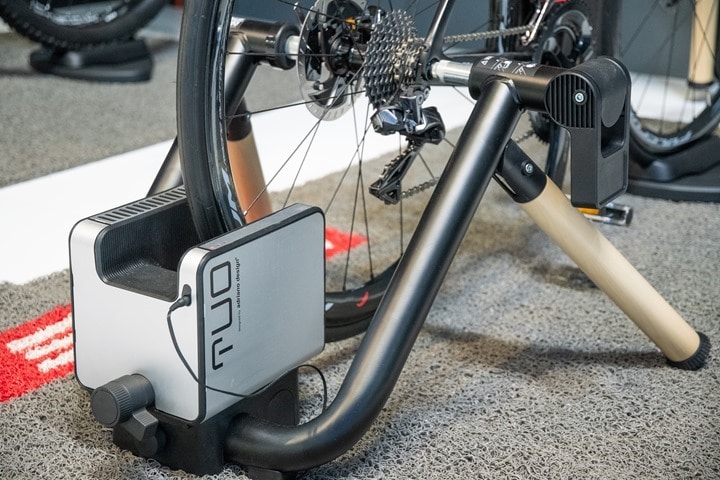
The only problem? The Tuo still (a year later), isn’t shipping yet. Supposedly that’ll happen in the August-September timeframe, but the so-nicknamed toaster (because it looks like a toaster) is still missing in action. If however, it can live up to the road-feel that I saw last year at Eurobike, as well as the accuracy claims they have, it’ll be a solid budget option for those that don’t want to deal with taking off their rear wheel.
In any case, here’s that comparison chart:
| Function/Feature | Elite Tuo | Elite Suito | Elite Direto XR |
|---|---|---|---|
| Copyright DC Rainmaker - Updated October 8th, 2024 @ 5:17 am New Window | |||
| Price for trainer | $580 | $799 (incl cassette) | $1,000 |
| Trainer Type | Wheel-on | Direct Drive (No Wheel) | Direct Drive (No Wheel) |
| Available today (for sale) | Yes | Yes | Yes |
| Availability regions | Global | Global | Global |
| Wired or Wireless data transmission/control | Wireless | Wireless | Wireless |
| Power cord required | Yes | Yes (no control w/o) | Yes (no control w/o) |
| Flywheel weight | 2.5kg / 5.5lbs | 3.5kg/7.7lbs | 5.1KG/11.2LBS |
| Includes cassette | N/A | Yes (11 Speed SRAM/Shimano) | Yes (11 Speed SRAM/Shimano) | Resistance | Elite Tuo | Elite Suito | Elite Direto XR |
| Can electronically control resistance (i.e. 200w) | Yes | Yes | Yes |
| Includes motor to drive speed (simulate downhill) | No | No | No |
| Maximum wattage capability | 1,250 (40KPH)/2,050 (60KPH) | 1,900w @ 40KPH / 2,900w @ 60KPH | 2,300w @ 40KPH |
| Maximum simulated hill incline | 10% | 15% | 24% | Features | Elite Tuo | Elite Suito | Elite Direto XR |
| Ability to update unit firmware | Yes | Yes | Yes |
| Measures/Estimates Left/Right Power | No | No | 9EUR one-time fee |
| Can directionally steer trainer (left/right) | No | No | With steering accessory & compatible app |
| Can simulate road patterns/shaking (i.e. cobblestones) | No | No | No | Motion | Elite Tuo | Elite Suito | Elite Direto XR |
| Whole-bike physical gradient simulation | No | No | No |
| Can rock/tilt side to side (significantly) | No | No | No | Accuracy | Elite Tuo | Elite Suito | Elite Direto XR |
| Includes temperature compensation | Yes | Yes | N/A |
| Support rolldown procedure (for wheel based) | Yes | Yes | Yes |
| Supported accuracy level | +/- 5% | +/- 2.5% | +/- 1.5% | Trainer Control | Elite Tuo | Elite Suito | Elite Direto XR |
| Allows 3rd party trainer control | Yes | Yes | Yes |
| Supports ANT+ FE-C (Trainer Control Standard) | Yes | Yes | Yes |
| Supports Bluetooth Smart FTMS (Trainer Control Standard) | Yes | Yes | Yes |
| WiFi or Ethernet | No | Data Broadcast | Elite Tuo | Elite Suito | Elite Direto XR |
| Transmits power via ANT+ | Yes | Yes | Yes |
| Transmits power via Bluetooth Smart | YEs | Yes | Yes |
| Supports Multiple Concurrent Bluetooth connections | No, just one | No, just one | No, just one |
| Transmits cadence data | Yes | Yes | Yes |
| Bridging or re-transmission | No | Purchase | Elite Tuo | Elite Suito | Elite Direto XR |
| Amazon | Link | Link | Link |
| Backcountry.com | Link | Link | Link |
| Competitive Cyclist | Link | Link | Link |
| REI | Link | Link | Link | DCRainmaker | Elite Tuo | Elite Suito | Elite Direto XR |
| Review Link | Link | Link | Link |
And again, as always don’t forget you can mix and match your own trainer product comparison tables using the database here.
Summary:
The Elite Direto XR is somewhat the equivalent of a trainer graduating up from high school to university. The Direto product series has always been the mid-range offering, but with the increases in power, inertia, and ERG mode control – it effectively becomes a freshman college student. Sure, it’s not quite in the same grade as a full blown Wahoo KICKR or Saris H3, but it’s not priced there either. Instead, Elite cuts the price and adds a cassette – making it far more accessible with very few trade-offs.
So what are the unknowns? Well, long term and/or manufacturing issues would be one. We saw stumbles with the Suito last year in that realm, though not with the Direto X. That kinda makes sense because the Suito was new-new, whereas the Direto X was basically just a slightly revamped Direto. And hopefully, since the Direto XR is a tidier Direto X, that we won’t see any manufacturing issues. But again, only time will tell. It is clear though that there’s improvements around the firmware, beyond just hardware. The ERG mode accuracy is crispier than in the past, which Elite says comes from improved algorithms around the newer flywheel size.
I’d have no reservations in recommending the Direto XR at this point, it checks all the boxes and is ideal for someone who doesn’t want to deal with anything more than just pulling a trainer out of the box, sticking a bike on it, and starting riding. Which, come to think of it – isn’t that all of us?
Found This Post Useful? Support The Site!
Hopefully you found this review/post useful. At the end of the day, I’m an athlete just like you looking for the most detail possible on a new purchase – so my review is written from the standpoint of how I used the device. The reviews generally take a lot of hours to put together, so it’s a fair bit of work (and labor of love). As you probably noticed by looking below, I also take time to answer all the questions posted in the comments – and there’s quite a bit of detail in there as well.
If you're shopping for the Elite Direto XR or any other accessory items, please consider using the affiliate links below! As an Amazon Associate I earn from qualifying purchases. It doesn’t cost you anything extra, but your purchases help support this website a lot.
And finally, here’s a handy list of trainer accessories that most folks getting a smart trainer for the first time might not have already:
And of course – you can always sign-up to be a DCR Supporter! That gets you an ad-free DCR, access to the DCR Quarantine Corner video series packed with behind the scenes tidbits...and it also makes you awesome. And being awesome is what it’s all about!
Thanks for reading! And as always, feel free to post comments or questions in the comments section below, I’ll be happy to try and answer them as quickly as possible. And lastly, if you felt this review was useful – I always appreciate feedback in the comments below. Thanks!





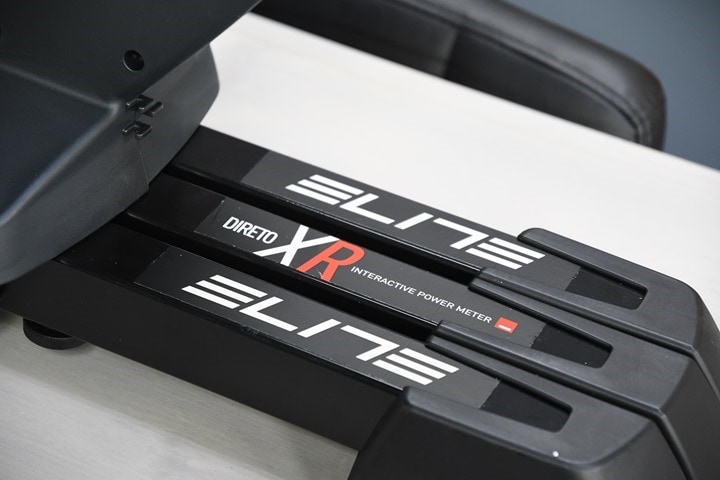
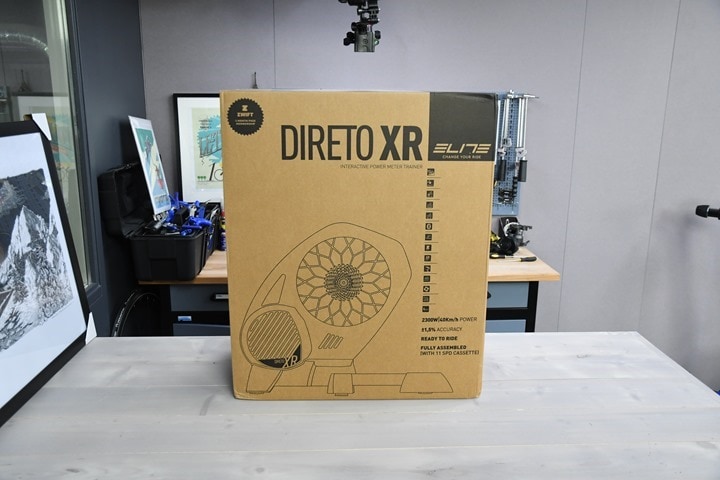
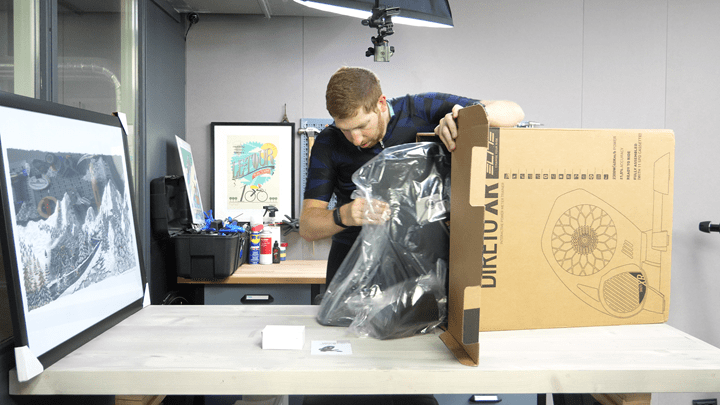
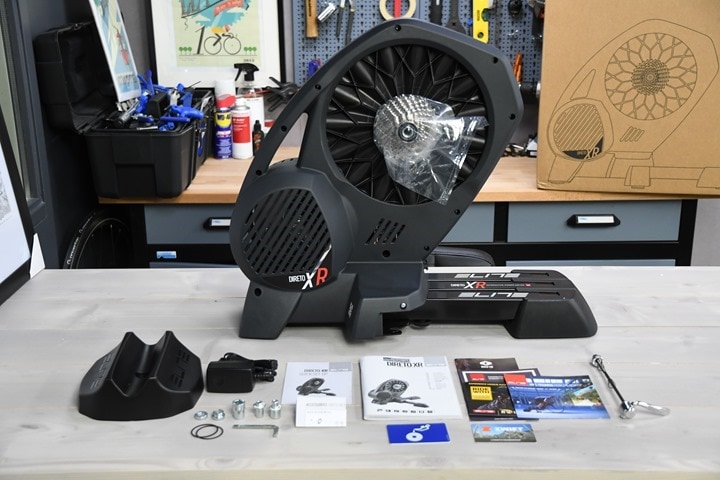
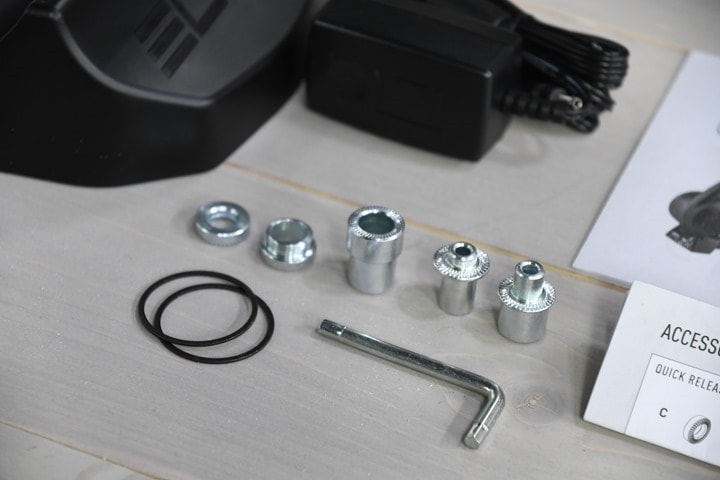
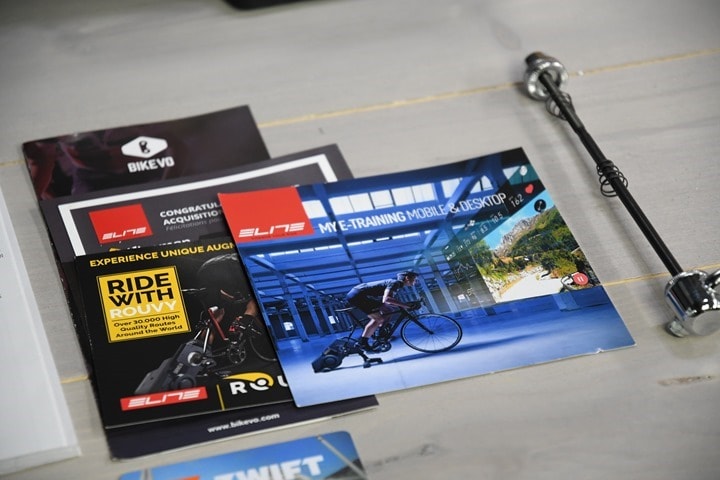
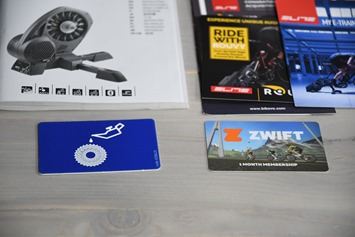
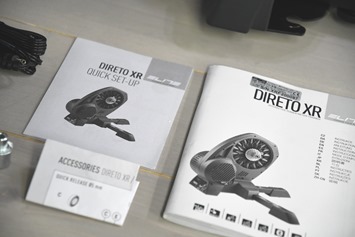
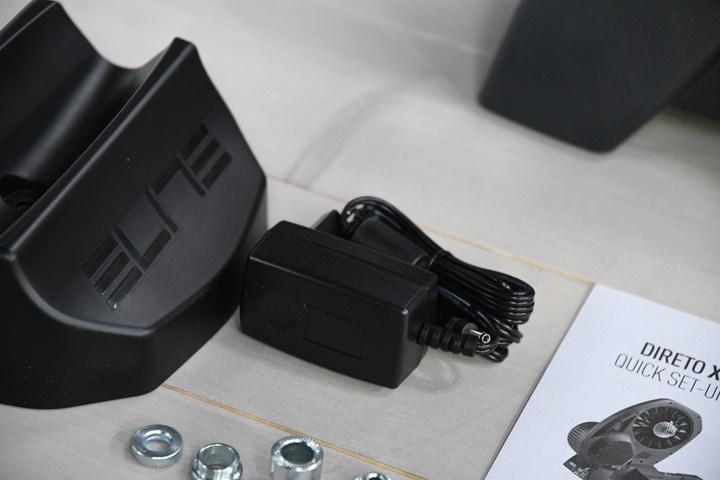
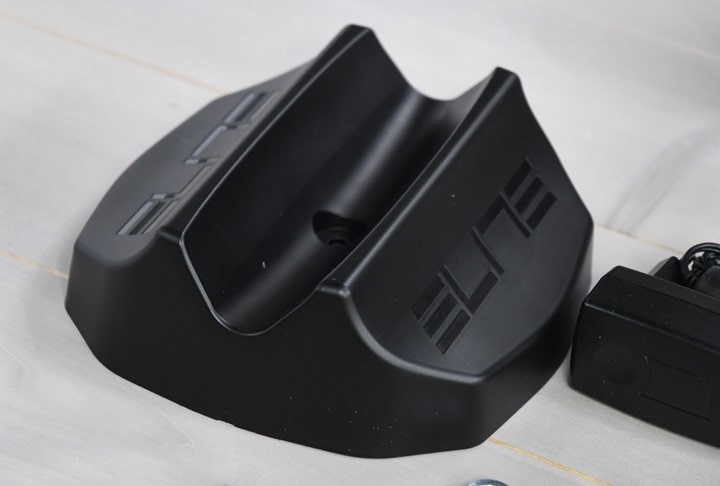
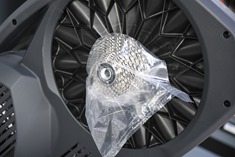
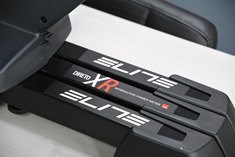
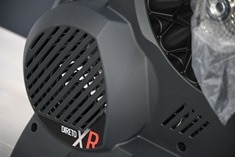
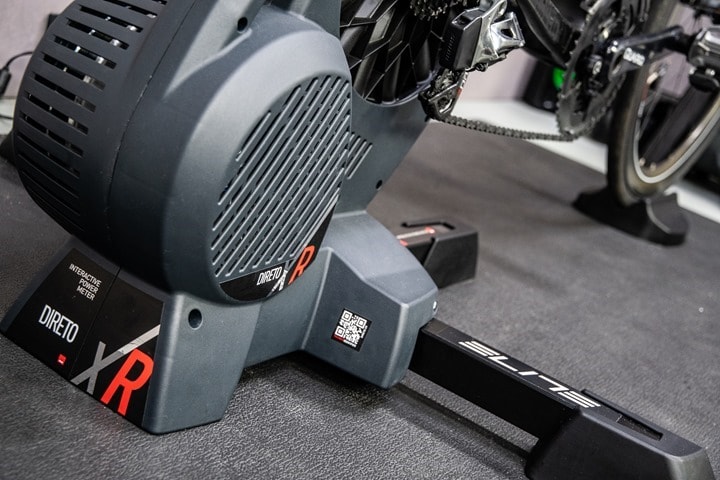
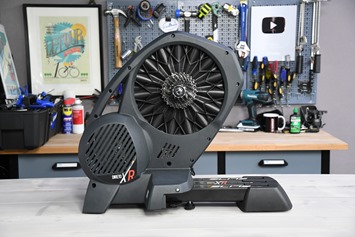
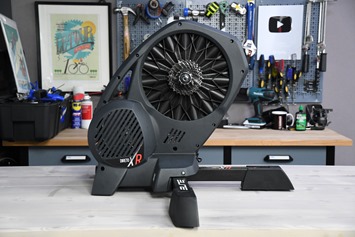
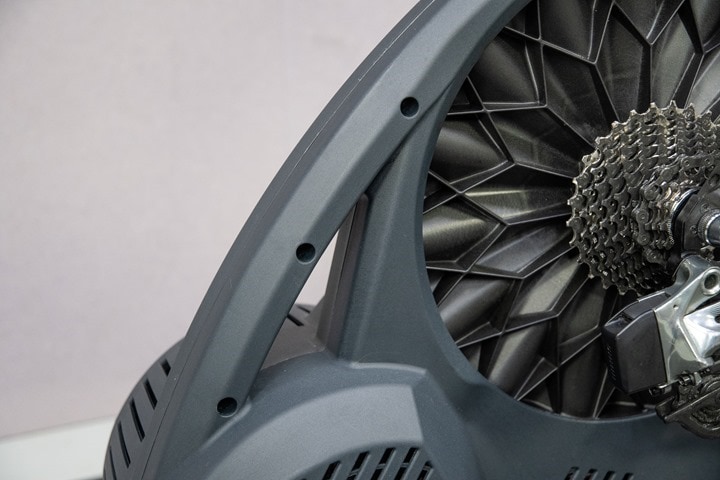
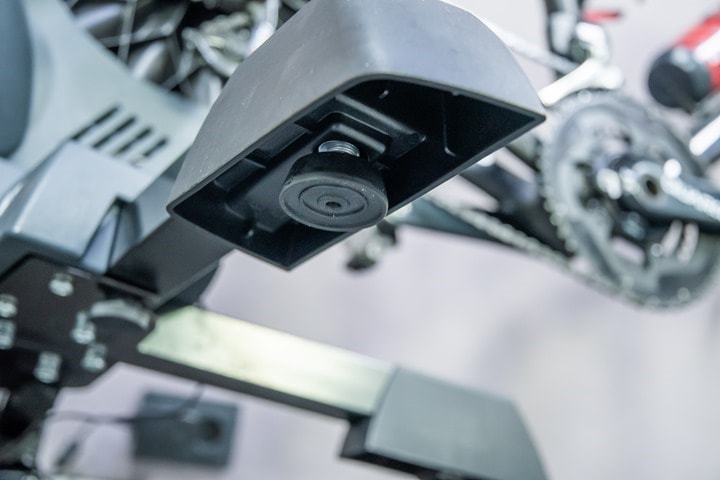
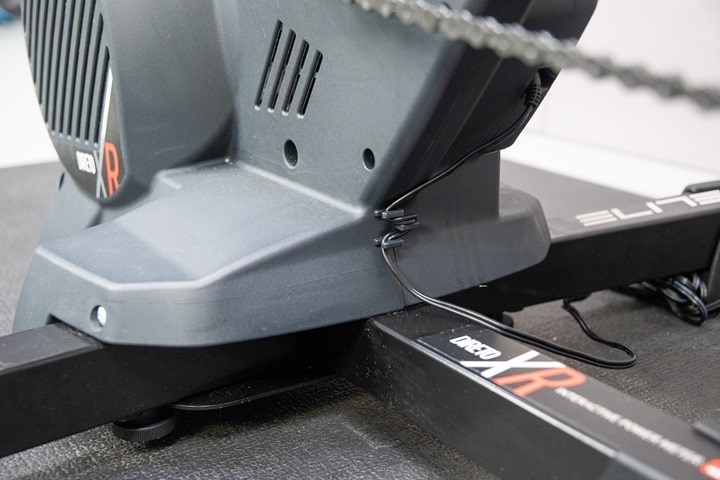
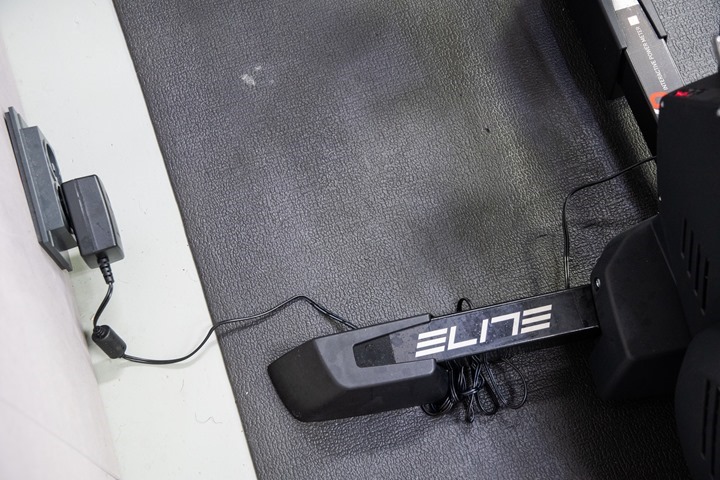
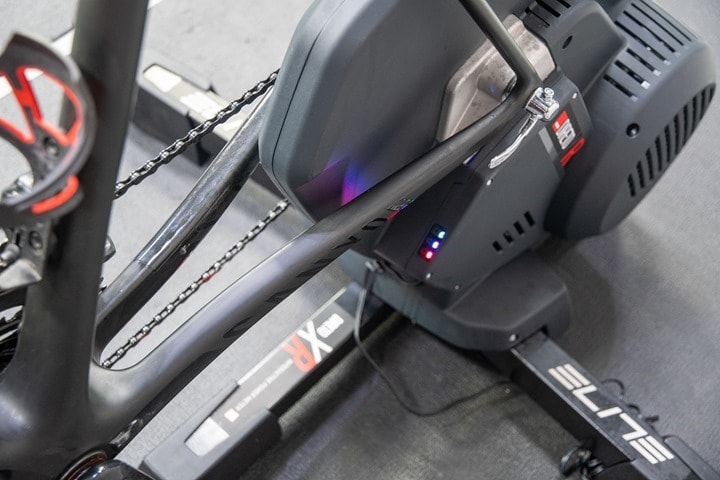
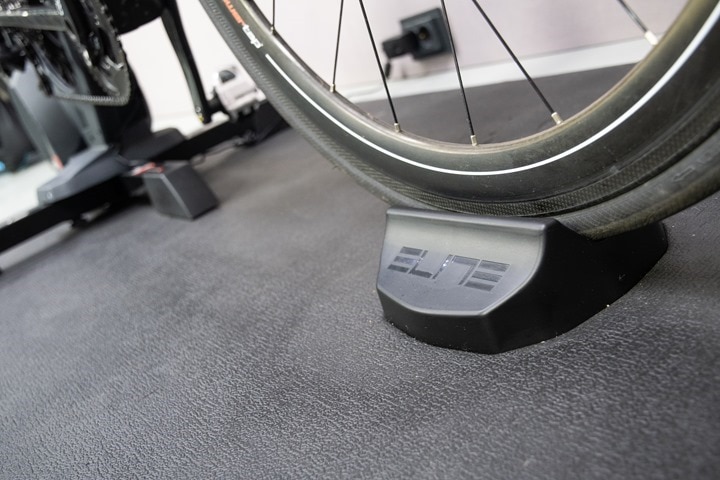
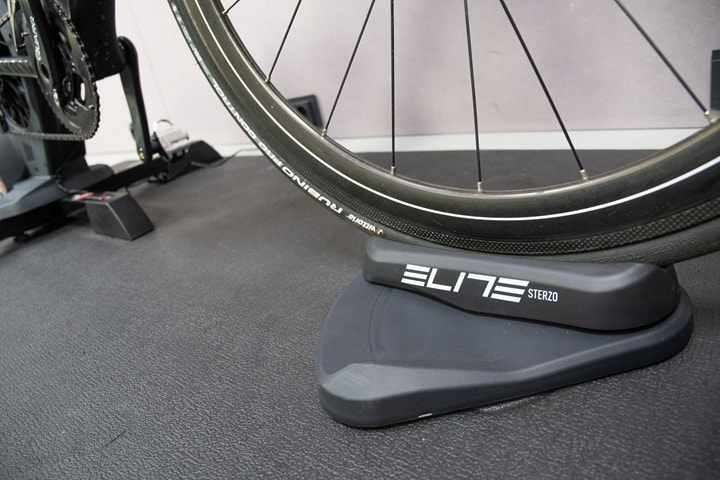
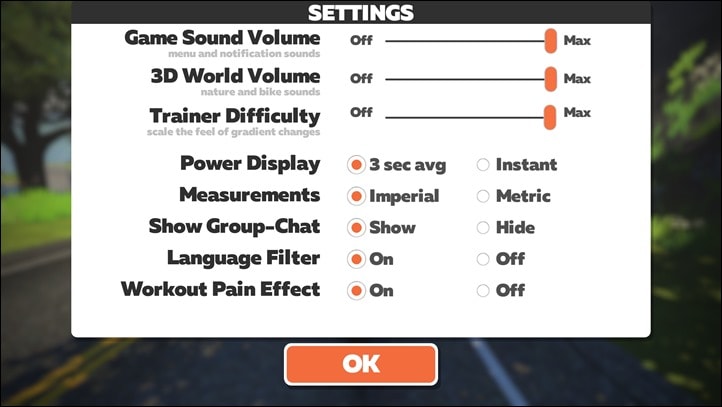
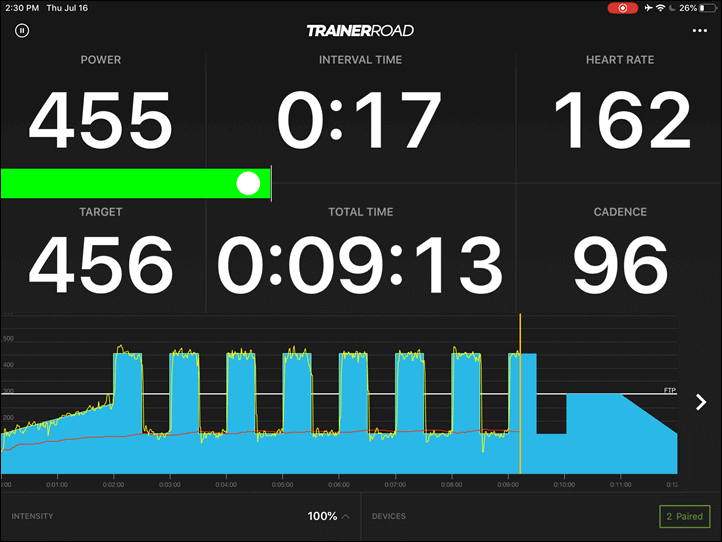
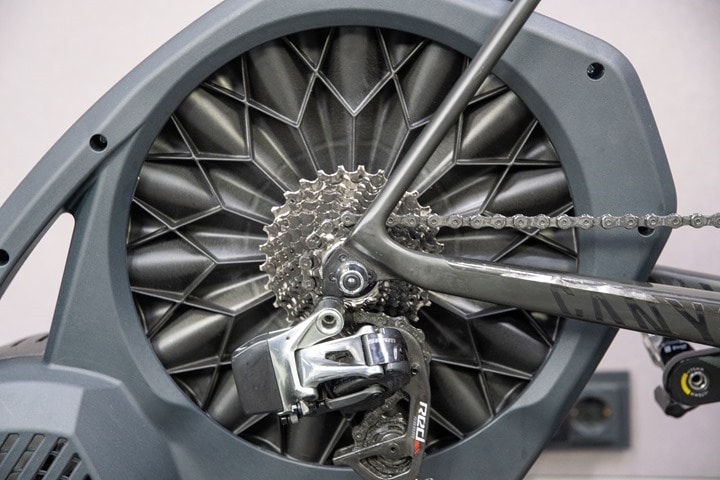
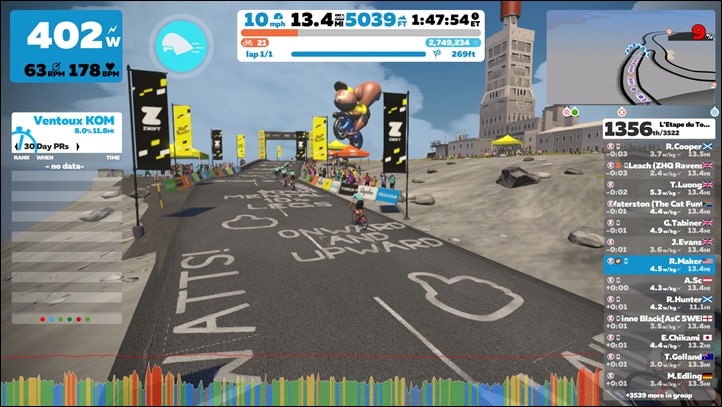
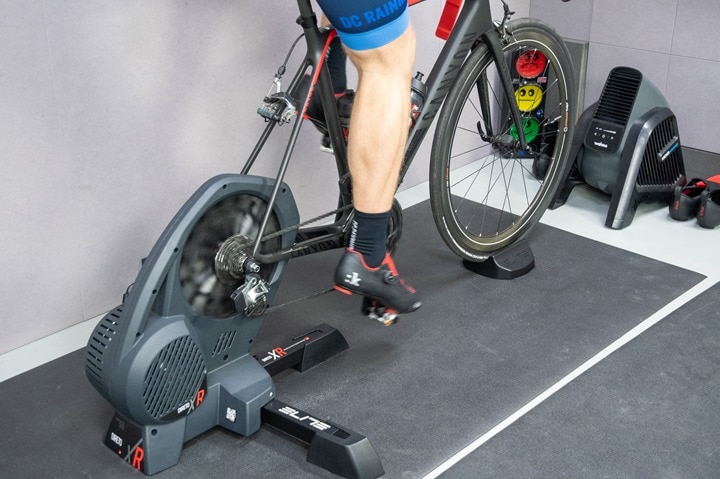
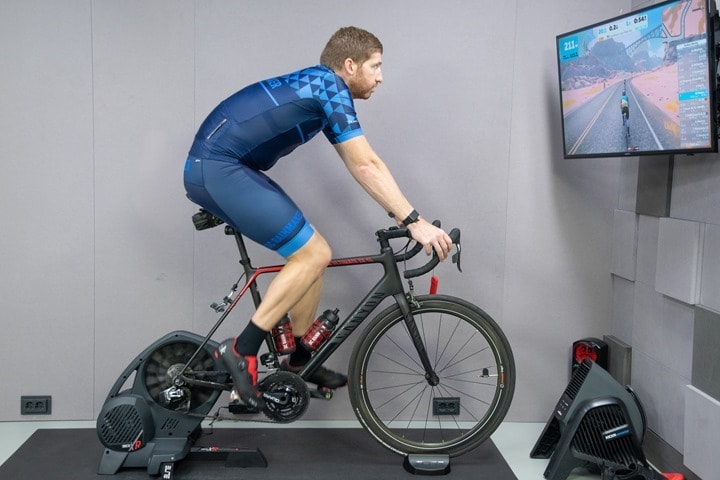
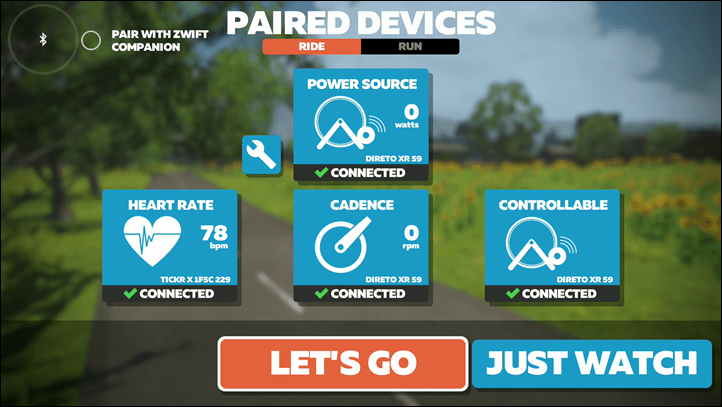
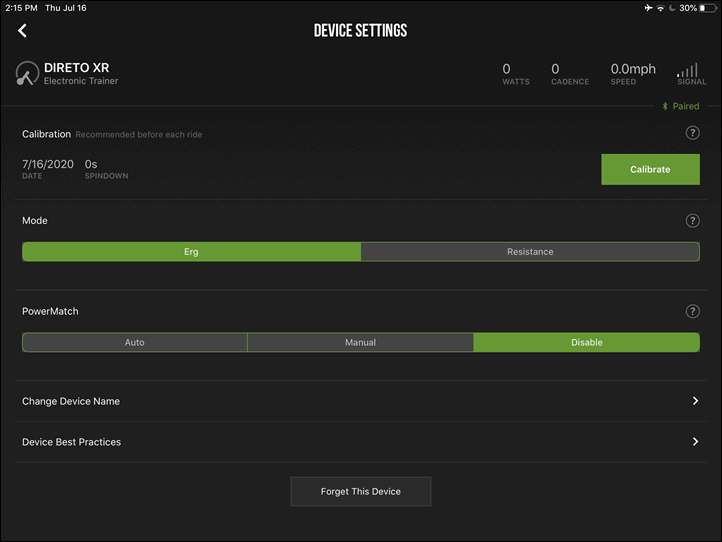
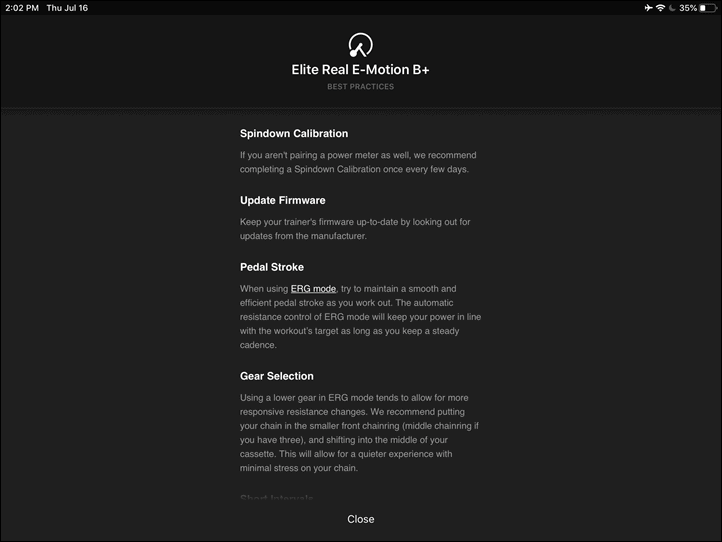
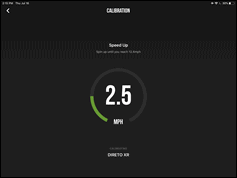
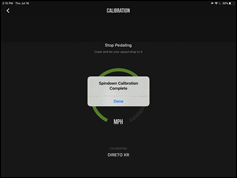
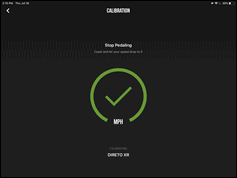
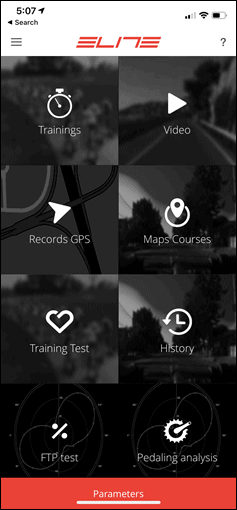
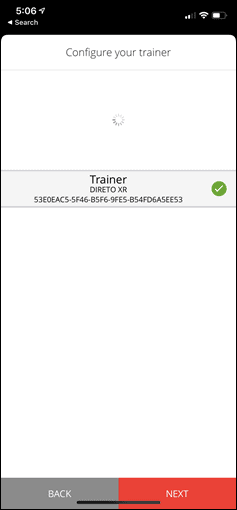
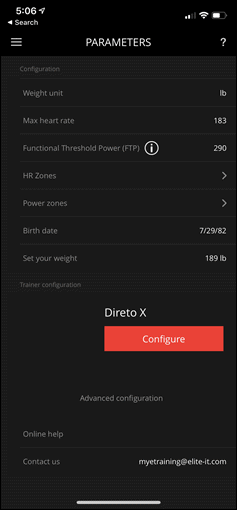
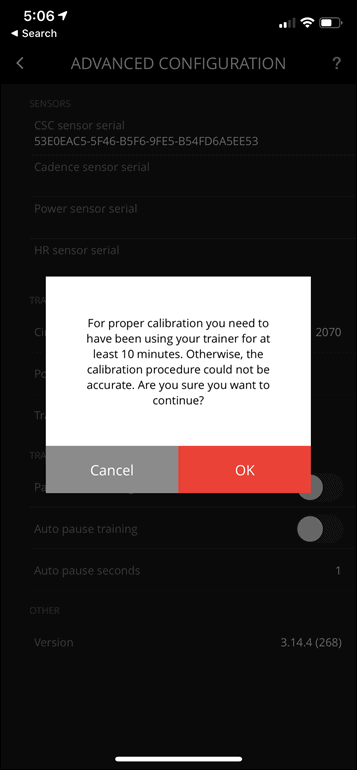
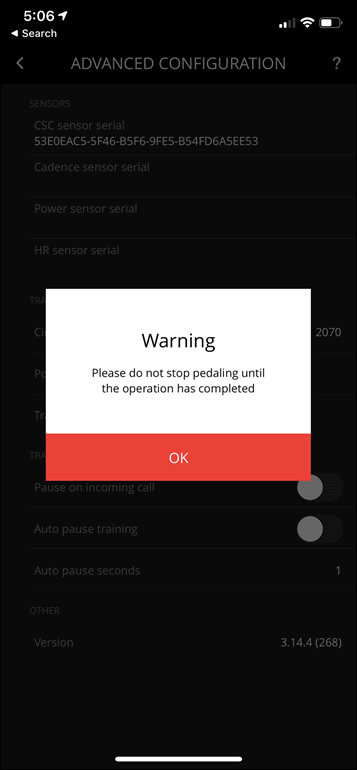
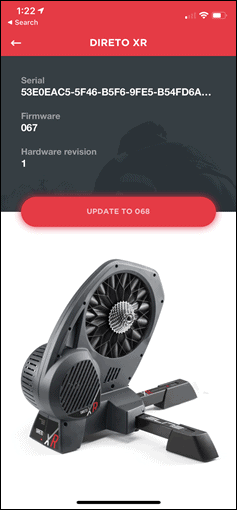
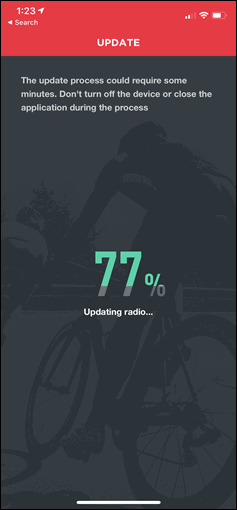
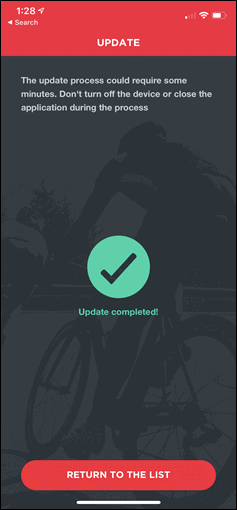
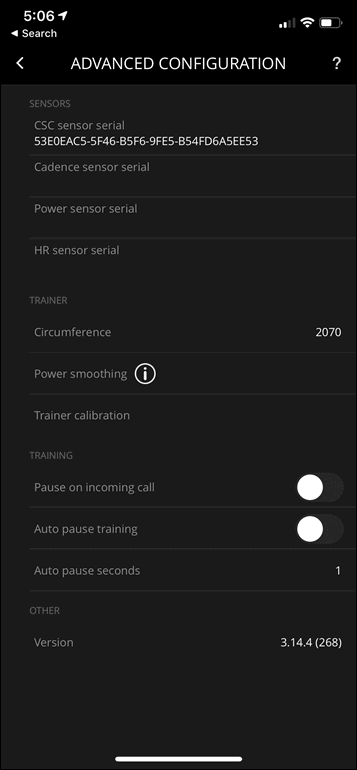
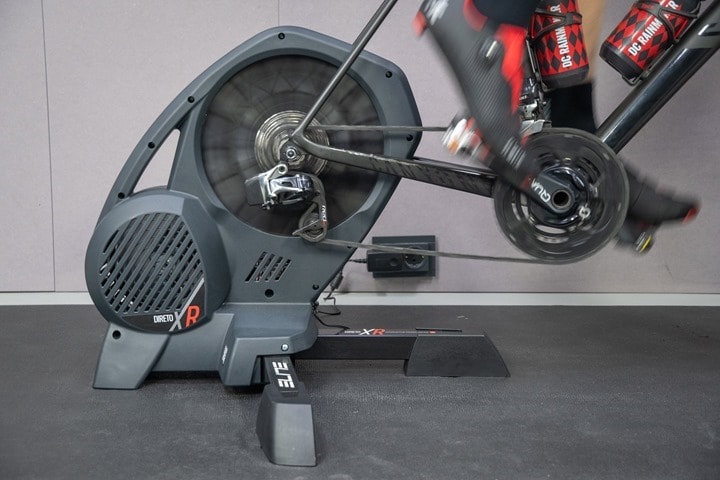






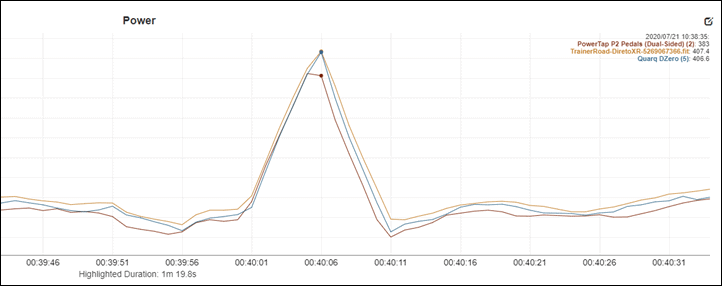



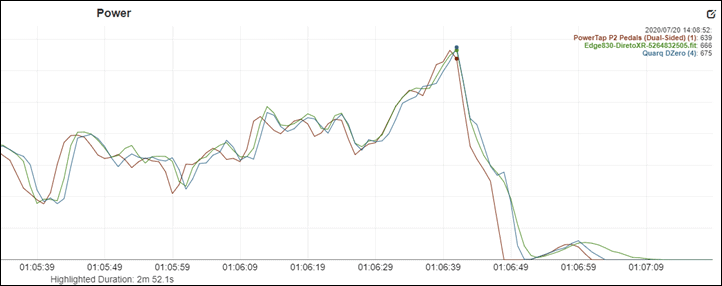





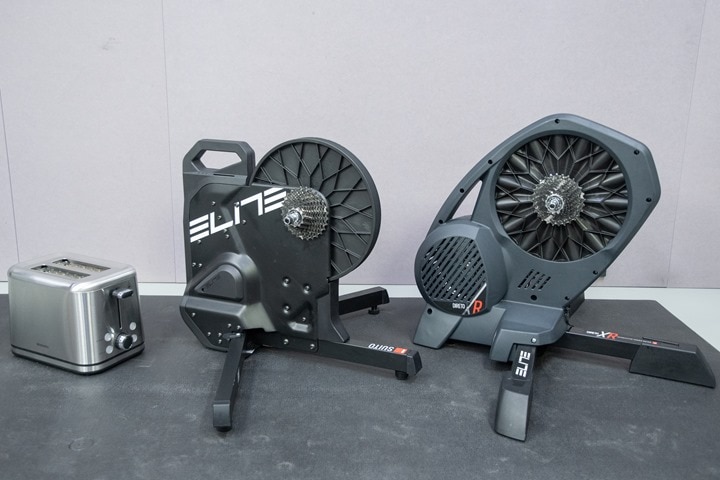
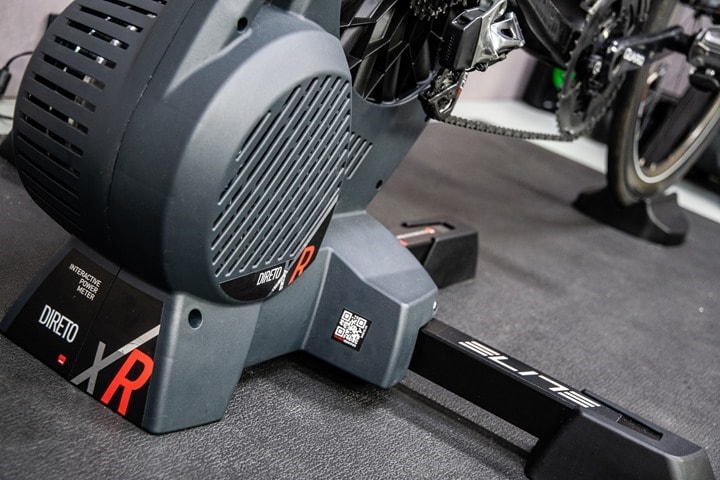
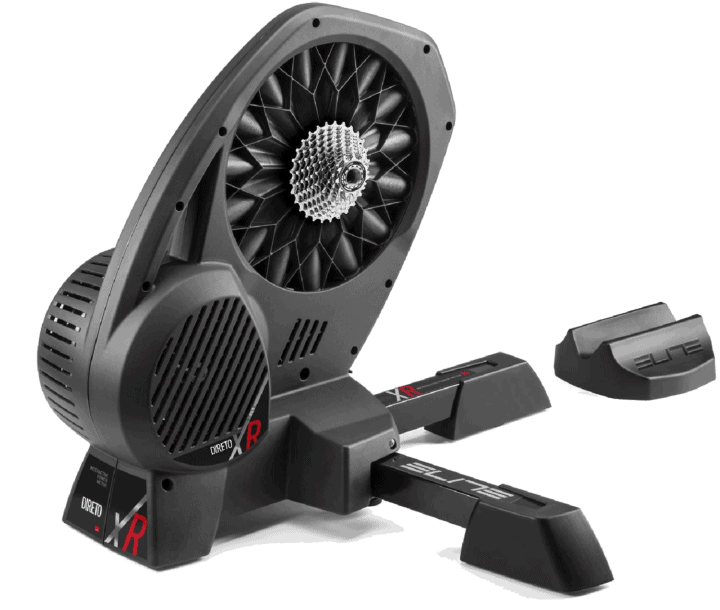
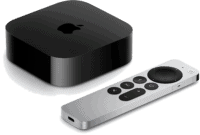



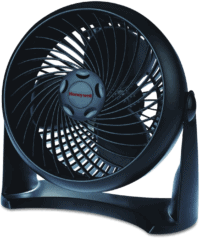
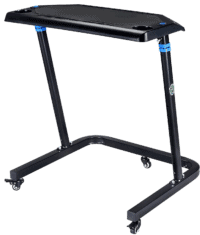
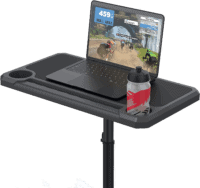
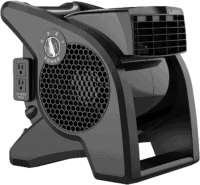
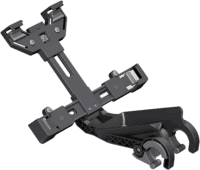





















That last picture, bravo Ray ?
+1 for the toaster!!
I’ve had that thing siting in a box since last fall waiting for the Tuo…finally found a use for it!
ELITE.: Indeed it’s been a long journey … Tuo is coming next month … promise …
Peter
Is it possible that the new improved ERG algorithms will be applied to the old Drieto X? I see slow ERG response as the only downside of my trainer.
and maybe even the original / first direto?
I’ll ask, but I suspect not. Most times things like that are tuned specifically to the weight of the flywheel, so with the change in the flywheel weight, my bet is that it throws off the algorithms.
ELITE: we are going to start to do tests soon to verify. A definite reply during the month of September.
Stay tuned.
Tks
Peter
Looking forward to any development about en eventual firmware update for older Diretos!
Hi ray, great review.
Jut to be sure that i’ve not got it wrong: is the Drivo lineup dead? …so at the moment the high end trainer from elite is the direto XR?
Correct, it’s no longer being made going forward – the XR is now considered the top dog by Elite.
Links from the accessoires list link need to be fixed, they link the review itself, not the item on Amazon.
Hmm, good catch. Looks like a new bug from a change made last week (it shouldn’t show a hyperlink unless there’s an actual review for said accessory). Appreciate it!
In a related note, next to the fan you say they’re about $18 dollers, but they’re no where near that on Amazon at the moment. I’d love to know where you can get them for that price.
Just to be clear — If you click on the description link it cycles back to the article. If you click on the word Amazon in the next column it goes to the correct product page.
On Amazon US, they’re actually down to $15 right now. Normally $18, but for whatever reason it shows $15 with 2 hour delivery. In any event, if you’re outside the US it’ll redirect to whatever is the closest Amazon to you.
So for example, Amazon Germany shows that same fan as 19EUR: link to amzn.to
£42 on Amazon UK ??
Shucks, it is £43 in the UK….
What would you choose between this new Direto XR, the Drivo II at 840€, the Kickr Core at 699€ (refurbished or 749€ for a brand new unit), and the Saris H3 at 840€ ?
That’s tough. Between this and Drivo II, I’d probably go Direto XR. Between this and CORE, that’s tricky – but 200EUR cheaper and I’d probably go CORE. And H3? Hmm, it’s louder for certain, but ERG mode is so darn good.
I think that the best choice would be the Kickr Core since I am used to a very very basic trainer (those cheap 80€ trainers you can buy on Amazon). Then, with the money that I would save with respect to the Direto XR or the Saris H3, I could also buy a good quality front light just in case I wanted to ride outside during autumn/winter.
Thanks for the great reviews – narrowed down my options to the Saris H3 and Elite Direto XR. I found good deals on both, with the Saris slightly more expensive by the price of a cassette.
Any thoughts on how they compare for noise – both while pedaling and when coasting (admittedly not common during most Zwift sessions, but still a consideration for me)? I watched the videos for each, and the fast speeds & sprinting actually sounded louder on the Direto XR video, which is contrary to your comments above. Maybe the video difference is just due to different recording setup or levels?
Bill… which one did you buy? I’m in the same boat about the same two trainers,
I ended up buying the Elite Suito. The H3 and Direto XR were both out of stock, and the Suito was in stock and I had a 15% coupon. After 20+ rides, I am completely satisfied with the Suito. No regrets.
Now there is more to the story – while the Suito was in transit, I snagged a rare craigslist offer for a pair of Favero Assioma pedals. After setup and the normal spin-down calibration, the Suito was measuring about 15-20watts below the Assioma pedals at my typical race levels (250watts/Zwift B group). I contacted Elite and got immediate and strong support – they had me run an ERG ramp workout collecting data from the Suito and Assioma pedals, and responded with a new mapping for the Suito. That got the ramp workout to agree for output, but I’m currently seeing the Suito track from 3-9watts high for Zwift races. I’ll keep working with Elite and see if they can’t make one more adjustment and get it spot on.
Just to comment on a couple other areas – the Suito + chain noise is too loud to use in the same room as someone else trying to be on a Zoom call. But one room away is acceptable.
And the height of the Suito is better with the front wheel directly on the ground – the provided front wheel stand tilts the bike up like it is on the hill – I think the Direto XR looked taller so it would be more compatible.
Bill… only just read this.
I ended up buying an Elite Tuo which I’m quite happy with. I say ‘quite’ happy as it’s a lot better than the Elite Novo smart trainer I’ve just sold but very similar as well. I’m not too bothered about if the watts are correct or not as long as they are not drastically too low :-(
I’m still thinking of getting a direct drive trainer as I’ve had a Kickr2 before and tried a few others & they must have improved since 2016. The Tuo feels as good if not better (to me) than the Kickr2 direct drive I had. I’m just a bit worried that the H3 and it feeling not much better than the Tuo after splashing out twice as much money.
I’d have thought they’d have fitted/included a cadence sensor to use the Elite app pedaling analysis. The cadence sensor it’self is cheap and would be great if they didn’t charge so much for postage. With the cadence sensor they can offer pedaling anlysis, why not include it with the top of the range trainer… pedaling analysis out of the box would give them a differentiator.
Yeah, I suspect honestly the challenge is that so few people use the pedaling analysis that it’s probably a non-thing. And those that do really want it, probably already have a cadence sensor floating around.
“…Axle Compatibility: Race 130x5mm…” shouldn’t you mean “Road 130x5mm”?
It’s a linguistics thing actually. In many European countries when they say ‘Race’ they mean ‘Road Bikes’ (because, logically, most other bikes go on the road like commuter bikes). I used the same wording I had for that table on my Direto X review, so it carried over.
Ray / anyone,
I note the fact that in ERG mode it is advisable to shift to a small ring at front and towards the hub at the back. I too have found this best on my trainer (Kickr Core fwiw), can anyone explain to me why this is the case? Just curious, but can’t get my head around why this may be.
Thanks
Essentially it’s a speed thing. The bigger ring in the front makes the flywheel go faster, which makes it harder for the trainer to control resistance on a dime. So by going into the small ring, you reduce the speed, which in turn makes it easier to control.
Aha yep that makes sense. Thanks
Slight mistake in the pictures:
Ray you might want to double-check the mandatory wall wart picture *before* you let that thing roam free in the DCR power brick sanctuary, never to be found again.
Good call! Thankfully Elite is standardized on power adapter bricks, so mentally I know that one. But yeah, gotta add a picture of it for sure!
And presumably the Zumo is long dead. I have one which seems to work really well for me, has kept me sane through lockdown and done 4000k on Zwift in that time, but too much overlap with Suito?
Your reviews and comments about products most valuable!!!
I’m feeling now more than ever we need a new field in your comparison tool for product name pronunciation :-)
Like a little speaker icon that’ll pronounce it for you? Kinda like Google Translate. :)
Slightly off topic – what shoes are you using here?
They look like Fizik Infinito R1s. Fizik at least, might be an older shoe they no longer carry.
link to fizik.com
Indeed, pretty close.
It’s the Fizik R4B, though, they seem not to make it anymore. Bought these ones last summer: link to awin1.com
Funny sidenote, I semi-standardized on the Fizik shoes because they matched my road bike frame. However, I’ve carefully picked out three different models that are visually different. And each one has a different cleat type on them (SPD-MTB/Look-Keo/SPD-SL). Otherwise sometimes I’d accidentally grab the wrong cycling shoes for a trip or packing or such.
I like the metal dropout spacers….the spacers for the H3 are plastic and feel like one might crush them with even a little torque to tighten.
Do you think we’ll ever actually see the Tuo? I’m in the market for a smart trainer, but direct drive is out of my price range right now. The M2 seems to be stocked places, but the KICKR Snap is always out (is that a harbinger of things to come?)…
I do think we’ll see it. It sounds like they’re getting closer. Though, it also sounded like that last November.
Yes, it’s coming shortly
“nobody actually wants to go up a 24% hill”
Well, I live in Seattle and I am training so I can make it to the corner from my house without walking. :)
(Not really, but you get the point).
Bravo on the full Elite line-up shot! That gave me a good laugh.
I feel like the 24% grade and 2300W capability is more about bragging than useful product design. Luckily it doesn’t seem to detract from a successful design, but I’d usually be worried about a design that focuses on flashy marketing points and potential ignores the basics.
Good stuff!
I’m waiting for a 100% slope unit so you can practice riding into immovable objects.
Post-ride analysis works best as long as your power meter supports Crash Dynamics.
Yeah, I don’t think Elite would disagree on max grade being about marketing. In fact, it’s something most of the trainer companies have said – a variant of: What’s really the point?
That said, the one thing that max gradient tends to underpin though is lower/slower speed ascents of heavier riders with steeper gradients. It’s not always 1:1, but in general if a trainer can put out 24% gradients for a lighter rider at higher speeds, then it can likely also handle a 12% grade for a 250lbs rider at 10KPH.
Tacx alluded to some of this in their Flux 2 series, and I included some charts showing it.
Were any Doritos consumed in the making of this review?
Sadly not, off-brand there. Haribo were though.
Ray, is the difference to Gen1 Direto noticeable enough to justify an upgrade? I wouldn’t mind slightly less noise and faster ERG but e.g. the improved resistance is of zero relevance to me.
The ERG mode is definitely noticeable, but the sound isn’t dramatic. I think upgrading a V1 to this might be a push unless you spend a lot of time in ERG mode.
“….You need to change the ‘Trainer Difficulty’ level to 100% in order to feel it (and most people don’t bother to)….”
Really? Do we know that for sure? That would be really surprising to me. The whole reason I like zwift and bought the original Drivo was so that I could train with the proper simulated grade. I want to suffer on 15% hills to better prepare me for outdoor riding.
Wouldn’t every cyclist want this?
Has always been 50% by default.
See — link to zwiftinsider.com
Narrator: Now we watch as AW change the difficulty setting
[5 mins later]
Narrator: This is the moment that AW finds out what 15% hills actually feel like
Narrator: In a strange turn of events, AW is now walking is bike and trainer up the hill…err…garage.
;)
It is a neat feature to be able to dial it back. I normally run 100% but, in a fit of insanity, Sunday I rode Alpe Du Zwift. I figure 8.5% avg…i can do that (I am closer to 59 than 58, run 225-230 lbs, and have the VO2 max of a piece of granite…asthma). I run a 34 x 28 and after two switchbacks at 250+ watts @ 50 rpm up 10-13% inclines…I dialed it back to 70%. The avg is misleading…filled with 10%+ ramps and flattish hairpins. I finished but it was not pretty. I would not have finished without giving myself extra gearing by dialing it down.
It is a neat feature to be able to dial it back. I normally run 100% but, in a fit of insanity, Sunday I rode Alpe Du Zwift. I figure 8.5% avg…i can do that (I am closer to 59 than 58, run 225-230 lbs, and have the VO2 max of a piece of granite…asthma). I run a 34 x 28 and after two switchbacks at 250+ watts @ 50 rpm up 10-13% inclines…I dialed it back to 70%. The avg is misleading…filled with 10%+ ramps and flattish hairpins. I finished but it was not pretty. I would not have finished without giving myself extra gearing by dialing it down.
Thanks for the winky, Ray, but the first thing I did was change my trainer to 100%.
So I’m riding bigger hills than you (and most ppl, I guess) both in real life and in zwift ?
In Zwift the hills are the same. Lowering the trainer setpoint does not diminish the hills but essentially lowers the speed and gives more gearing options. A 10% grade “feels” like 5% because it slows one down via lower wattage for a given gear. A 1000 foot climb is still a 1000 foot climb.
But the point is, on a trainer you’re not doing a 1000 ft climb, you’re doing a zero foot climb. How it feels is entirely up to the trainer.
Did you notice any change in the belt/pulley design? I suppose you did not open the unit up to compare but just in case… Any chance this XR may be less prone to belt breakage problems?
No, I didn’t open it up. Sorry!
Does it work with thru-axle bicycles?
Never mind, I just found the relevant section in the article.
Elite Tuo, Available November 2019?
Maybe Nov 2020…
Doh – good catch!
Ciao Pekka/Ray,
Elite: Fingers crossed it should be September 2020 :) … apologies for the delay …
Grazie,
Peter
You’re right :-|
Now we are almost sure it’s ready by that date.
any cycling dynamics?
Not per the spec, though, they might have enough overlap within their existing extra pedaling metrics to make it work.
So a question that some of us may have: now that they’ve been able to make ERGmode work well on the XR, is there any chance they’ll release a firmware update to the Direto (original) so that we can get some love as well? I’m on the verge of selling the Direto for a H3 because ERG mode is so… marginal.
Aaaand… maybe I should have read more of the comments first. But an addendum: Modifying the algorithm for a slightly lighter flywheel shouldn’t be too much effort (though likely more than just a multiplication factor).
Elite never released any firmware update for the first Direto since it was more or less bug-free. It appears they prefer to have new features exclusively on newer devices even if they could be implemented for the old ones. It’s bad for consumers but a valid business strategy. Garmin does it as well.
I’m still hoping that they will come to their senses and release an update if it’s feasible. Though I know they likely won’t for reasons that you outlined. And I don’t begrudge them that since they do need to make money. But that would just push me to getting the H3. If I’m going to spend that kind of money I’d rather do it on a quieter trainer that has bang-on snap-to ERG mode changes. It sounds like the XR is “good” but that the H3 is still better. For the same money. So why not just get the better trainer?
I checked with Elite on this, and they’re going to start doing some testing to see if it’s possible to update the Direto X firmware with the new algorithm. Due to summer holidays/etc, that testing won’t likely be completed until September. But they said it’s on their list.
Also related, there was a mistake in the original flywheel specs/sheets from Elite, which didn’t actually include the weight of the discs. They’re updating their specs now to conform to how it’s usually spec’d. So in reality it’s 5.1KG (not 4.5KG), thus making it 21.5% higher that the Direto X.
Elite says this makes a 26% larger intertia amount:
Direto X Moment of Inertia = 15800 kgxmm2
Direto XR Moment of Inertia = 19930 kgxmm2
Increase Moment of Inertia 26%
Aww… bummer. I have one of the original Direto models. It’s been mechanically flawless and accurate, but ERG mode is… lacking. And I spend most of my time in TrainerRoad while watching either BikeTheWorld YouTube videos or Zwift. So ERG mode is key. The inability to evenly perform burst intervals of less than 20-30 seconds means a lot of workouts are off the table (unless I want to be really annoyed). So if they can’t improve ERG mode then perhaps a new trainer is in order. Which is too bad b/c I do actually like my Direto apart from the ERG mode issue.
Thank you for checking!
Has their been any update from Elite about the status of their testing to see if it’s possible to update the Direto X (and Direto I hope) firmware with the new algorithm?
A bit OT but you show using the Elite Sterzo for the riser block and mention that you always use a riser.
I assume the Sterzo is designed to level the bike when used with an Elite model trainer and 700c wheel.
What about when used with other brand trainers? Seems a bit hit or miss between brands.
How do you feel about spending hours in the saddle on an trainer without a riser?
Doing so means simulating a slight downhill ride. Or a riser too tall means a slight uphill slope.
I suppose levelness on a trainer is a minor consideration in the larger scheme of things, but I found out the hard way it makes a BIG difference if you mess with saddle position on the trainer and later realize something isn’t quite right on a long road ride. :)
Some trainers are designed to be used with or without a front wheel riser. The key is to partially ignore that and simply measure the axle height from the ground to the rear axle.
First option and common recommendation is to have the front axle level with the rear axle. This is effectively a “flat” road condition being level. It works for many, but I and others find that the level setup leads to more pressure on the hands and arms. This sometimes results in numbness or other discomfort, even on bikes that are otherwise “perfect” when ridden outside.
Second option and the recommendation I suggest is to have the front wheel 1-2″ [25-50mm] higher than the rear axle. I do this to alter the weight distribution and shift the rider weight slightly rearward. The reason I do this is a faux proxy that is meant to replace the backward push we experience when riding outside, from wind resistance.
That wind resistance causes a rearward push against our torso in particular, and I suspect leads to a related weight distribution shift. My high front axle trick can lead to a similar shift, and works to relieve pressure on many rides I have shared this trick.
It does not work for everyone, because some still prefer flat setups, but it is worth a simple test, especially if you are experiencing issues with your bike inside (that is comfortable outside).
Interesting but aren’t you essentially riding long hours with your saddle nose up if you use a tall riser?
1-2″ high riser is like a 3% slope.
That’s where I got in trouble installing a new saddle. Leveled on the trainer was nose down on the road.
Plus I went looking for a new saddle because long intervals on the trainer were getting uncomfortable.
Yup, 1″ [25mm] is about 1.5* up and 2″ [50mm] is about 3.0* up.
As ever, YMMV and I don’t claim it’s a cure all. The presumption is a bike that you are comfortable with and have no problems while riding outside, and then taking it inside. Level axles on that setup may result in overloading on the hands and arms. If so, my suggestion is to test with front axle higher.
Testing it only takes seconds to apply with wood, books, wheel riser, etc. and a single workout can often let a person know if it works for them or not.
As to saddle comfort on the saddle, that leads into my other recommendation, which is a rocker plate. There is nothing natural about locking a bike vertically like done on most trainers. A rocker plate or trainer with some motion (Kinetic R1, some older Elites, and even the Tacx Neo “flex”) can give just enough saddle motion to relieve the pressure compared to no motion at all.
Contrary to popular belief, we are not perfectly stable or vertical when riding a bike outside. I feel it’s problematic to lock it as most trainers do. Some short rides and riders can get away with no motion. But longer rides, especially ones at lower power levels can lead to saddle pains that are often addressed with rocker plates and the like.
Worth a consideration, and the hack trick to try is some extra thick foam padding (excercise mats, firm foam sponges, etc) under the support feet of the trainer, to allow some leaning motion. Based on my testing, even a small amount can lead to improved comfort while seated.
Thanks for the winky, Ray, but the first thing I did was change my trainer to 100%.
So I’m riding bigger hills than you (and most ppl, I guess) both in real life and in zwift ;)
No you are not. At least on Zwift. All it does is effectively change the gears you have available. People have explained this a million times. One example is below. Watts are watts.
link to zwiftinsider.com
No, AW is correct. He’s riding bigger hills. He didn’t say he’s going faster in Zwift. And that’s 100% correct.
No matter how many times people try and justify/explain this, they get that part right (speed in Zwift), but they often get the rest wrong. It’s absolutely making it easier because most humans pedal bikes easier and more efficiently at a 80-100rpm cadence than a 50-60rpm one.
– It effectively gives you a massive cassette, which makes it *easier*, since it’s a fake cassette that doesn’t exist in real life, effectively flattening the hill.
– If it wasn’t, then racers wouldn’t be using it to be faster in race
– If it wasn’t, then the darn option wouldn’t literally be labeled ‘Trainer Difficulty Level’
– By having an endless cassette, then it makes it easier to go up that hill because most people can spin more efficiently at 90RPM then 50RPM when the hills get really steep – that article explain exactly that. Of course, if you go to 0%, then you potentially swing too far the other way.
I don’ know why some in the Zwift community keep trying to push back on this concept. Also, if this wasn’t the case, then Zwift wouldn’t already be discussing setting this to 100% for certain races.
When does this hit the market?
Hi Alan,
ELITE: Thanks for the interest. We are shipping units as we speak. Being manufactured in Italy, product will arrive on European shelves first and overseas countries later.
Ciao
Peter
Simple insertion procedure for stronger magnets and the product is ready. You can do it yourself, but new software is needed and you won’t get it.
That “9EUR ONE-TIME FEE” as mentioned in the table seems a bit silly.. Couldn’t they just have added that amount to the cost of the unit itself?
Hi Ray, Here in Portugal I can find the Direto XR and the Kickr Core for about the same price. Which one would you pick? Most important aspects for me in the following order are: ERG responsiveness, noise and climb simulation. I am tempted to pull the trigger on the XR specially due to its climbing capabilities which I can simulate a lot of hills in my city (10 to 25%) but I am concerned with the noise. Is that bearable for an apartment or should I go for the Core? I have very sensitive neighbors but I only had wheel-on trainers in the past so I don’t have a good noise reference. Thanks
Even the Direto I is very quiet on the climbs. I wouldn’t worry about the noise.
Hi Ray,
The link to the trainer desk review looks bad. It keeps sending me back to the Elite review? The amazon link works fine though.
Yeah, there’s a bug in the table whereby if there isn’t a review (such as that cheaper trainer desk), then it loops back to the current review. Working on a fix!
My new smart trainer elite XR trainer and the question about the measurements estimates left / right power with the single rate of 9 euros. How and where can I get this information (pay)?
I also have assioma duo pedals and can compare information
ELITE: Hi Jordi, thank you for choosing Elite. Pedal Analysis is an in-app purchase from the myETraining app. The Direto XR comes with a free yearly subscription of myETraining then it’s €19.99 per year – compatible with Windows, MAC, iOS and Android. Peter
My new smart trainer elite XR trainer and the question about the measurements estimates left / right power with the single rate of 9 euros. How and where can I get this information (pay)?
I also have assioma duo pedals and can compare information
If price is an issue but not totally unaffordable, where do you draw the line between a wheel on and direct mount trainer? I am interested in getting one for the winter. Normally my winter rides are going to work in the wet and rain in the PNW, but with covid and WFH that may be a bit harder to motivate. So I am trying to decide if I should get a wheel on or direct mount, and how to decide which one. Is it a fitness level difference? Just enthusiasm? Pre-COVId I would bikr around 300 to 350 k per week and I can avg a bit over 30 kph over 2 hours in flattish conditions, relatively few stops and light wind.
ELITE:
Hi Brad, yes the often asked question Direct-Drive or Wheel-On?
Price/Bdgt: Wheel-on trainers are less expensive than direct-drive models. That said, 3 years ago the gap between the two was more or less double compared to where we are today. It’s gone from around $600 down to about $300. So there’s still a difference but it has reduced considerably. Then you’ll need to consider tyre wear with a wheel-on trainer which clearly you don’t get with a direct-drive model. On the other hand, you need to get a cassette with a direct-drive (although there are models on the maket like the Direto XR that come with a preassembled 11spd cassette).
Ride experience: Direct-drive trainers offer a better all-around indoor experience compared to wheel-on models. A. Road-feel: the heavier flywheels that direct-drive trainers have offer more inertia effect replicating better outdoor riding. B. Noise (or better said the lack of noise): direct-drive trainers are generally speaking quieter than wheel-on trainers due to less friction surface between the bike and trainer. With direct-drive trainers there’s no tyre rubbing on the resistance unit. C. Rear tyre slippage (or better said the lack of slippage): direct-drive trainers don’t slip during sprints or at high power levels with low RPMs. While this can happen on wheel-on trainers and it is more incline to happen if you are a big/strong rider.
Power data accuracy: direct-drive trainers are generally speaking more accurate regarding data on your watts.
Versatility: actually wheel-on trainers are generally speaking more versatile as they are smaller and lighter and there is no wheel assemply required. So if you intend using the trainer also for outdoor races for warm-ups and cool-downs, then a wheel-on trainer is more suitable. And if you will be using the trainer with multiple bikes with different speeds/cassettes then again the wheel-on option is the preferred choice. That said, there are now direct-drive models on the market that are smaller and easier to carry around compared to where we were 3 years ago. Equally, with a wheel-on trainer although there is no wheel assembly, you do need to make sure your tyre is clean and have the right tyre pressure and finally regulate the resistance unit so you apply the correct amount of pressure on your tyre.
Here is a video we did earlier this year comparing rollers // wheel-on trainers // direct-drive trainers. But just google wheel-on vs direct-drive and you’ll find some really good content on the subject … in addition to what you can find here at dcrainmaker.com ;)
Tks, Peter.
link to youtu.be
Spend the $$ and get a Direct Drive unit. I had a Snap for several years (since they came out). Once I switched to the H3 I had wished I had gotten the Kickr way back when…
Just my $0.02
Yeah, Peter from Elite pretty much outlined everything spot on. As Chris noted, easily go direct-drive rather than wheel on. There’s very few cases I’d recommend a wheel on trainer, except to save significantly on budget.
Direto xr:762 € on bike-discount.de, should i get it ? I am thorn between this one and the Core
I was considering the Core too but I think the Direto XR is more future proof and I have better Elite support in my area. I bought my Direto XR 15 min ago from Bike-Discount.de
I own an Elite Real Turbo Muin. From my interactions with Elite customer support and lack of help to other customers, I would not recommend people buy any Elite products other than water bottles and cages lol as they do not support their customers. There have been no updates over the years to my trainer, they just release new ones and forget about older trainers.
That’s is a good (actually bad) feedback. The Wahoo representative in my region is nearly dead, they have a horrible website with nothing for sale and never respond to any email, so I hope I have a better experience with Elite. As for software updates, the way I see it is that some companies like Garmin releases a lot of updates, but mostly to correct the huge amount of bugs and things that do not properly work when they launch a new device while Wahoo, for instance, releases fewer updates to a properly working unit so I am not really concerned about many software updates as long as the unit works as advertised out of the box. Just as an example after 5 years using the Garmin Edge 1000 it still has some crazy flaws so I care less about updates and rather look for a stable working unit.
Ray,
If there was only a £25 difference between the Saris and this, is the Saris a better unit to go for?
Replacing an old Bushido. Thanks much
Hi any, advise woukd be great. I looking. To get a new direct drive turbo trainer and have found the elite suito for £580 or the elite drivo 1 for £600. Which woukd you recommend. Thanks
Direto xr or Wahoo Kickr Core?
For the same prior.
Price
Probably CORE, unless you want the higher gradient allowance, or don’t want to deal with a cassette/cost of that.
What about the drivo 1 vs the suito?
Received my XR today, sweet and ready to ride right out of the box. I was a bit skeptical about the noise level but no worries here, I can definitely ride in my apartment day and night, just avoid those crazy sprints at 3 am and it should be absolutely fine.
I’ve got a question: my MTB has got the boost 148mm standard. Is it possible to put a 148mm boost frame on this trainer?
Elite:
Yes with this adaptor (available seperately) link to elite-it.com
Tks,
Peter
How is the ERG mode responsiveness of this trainer? I have Drivo 2 and it takes 14 seconds to ramp up or down. I spoke a lot with Elite support, they provided me some guidance and extra firmware settings to speed it up, down to 8 seconds. But as a result, the power overshoots the target by over 100W before stabilizing to the desired watts – making the training session much harder to complete.
I saw similar picture in your trainer road screenshots, though it is hard to get the correct duration and overshoot from a picture.
Keep in mind that TrainerRoad anticipates this delay and starts ramping up(down) the power before the interval starts. If you use Elite’s own software, MyETraining, or the Garmin/Wahoo head unit to run the intervals, you will get the full delay.
Create a workout with 1 minute@50W, 1m@100W, 1m@50W, 1m@200W, 1m@50W and 1m@300W and you can see how slow the ramp up/down is and how much does it overshoot.
I use 39/25 teeth gearing, bluetooth connection with no other BT in range, no WiFi, no ANT+ connection either. I keep constant 90 rpm cadence, +/- 2 rpm.
I have Quarq DZero PM on my bike and readings are identical, both in values and in shape in time.
P.S. The trainer hardware is more than capable of doing it better, when doing the crit zone in Zwift, on the rollers, the trainer instantly changes the resistance to match the terrain. Much faster than my old Tacx Flux1. Still, Flux had much better, faster and no overshoot ERG mode.
I cover the ERG mode responsiveness within two sections in the review, including the power accuracy section, with a much more difficult 30×30 workout. Here’s my results: link to dcrainmaker.com
Ray, thank you for your reply. I am not bothered with accuracy since I train only on this trainer. And yes, the power is very accurate, following exactly what the Quarq DZero reports, with the same responsiveness.
The issue is with the “Power Responsiveness” and the initial “Power Stability” while responding to changes. From the picture there, I can’t get how long does it takes to ramp up the power and how big the overshoot is. Though it seems better than the Drivo2.
As I wrote in my previous comment, it is better to test these outside of Trainer Road. They know about these trainers and preemptively increase/decrease the power even before the interval starts, to provide consistent experience for their customers. You can create a simple workout in Training Peaks and sync it to your garmin or wahoo head unit, and run it from there. You will get a better picture of the actual trainer responsiveness and initial stability (over/undershoot of the target)
Can you give + and – after using it for 2 weeks ?
Does it support multiple simultaneous connections to stream data to different devices, as the Kickr does?
Thanks
Unlimited ANT+ connections, but only a single Bluetooth Smart connection.
I recently got the Direto XR and was wondering if there is a way to pair my Garmin HRM-Tri to Zwift. I know Zwift doesn’t support ant+ for the hrm-tri. But is there a way to pair my Garmin hrm-tri to the Direto XR and then pass the heart rate to Zwift by using the Direto XR as an Ant+ to Bluetooth conversion?
Thanks
i have garmin hrm-tri and ant+ usb dongle plugged on my windows pc and zwift recognized the hrm-tri.
Great review Ray!
Between this and CORE, which one would you choose? The Direto XR is at 805€ including shipping and the CORE is at 850€ including shipping, a Shimano 105 cassette and the tools.
I’ve read pretty much every review of yours for direct drive smart trainers including the comments. I had initially thought of getting the Wahoo KICKR CORE but I was feeling pretty nervous about all the problems they seem to have and then I read that Wahoo cannot guarantee the power accuracy below 15 degrees! I plan on setting up my trainer in the cellar which gets cold in winter so I’m guessing that’s a definite “no” to a Wahoo!
I read in the comments that Elite say their trainers work in colder temperatures and users have reported no problems with Elite trainers in cold temperatures.
So my question is: would you recommend the new Direto XR (£824) (which is new and reliability is unknown) or the discounted Drivo II (£749.99) (which is now being discontinued and therefore I assume any problems would be difficult to address?)
The included cassette isn’t a deal breaker as I’ll be using my 10-speed bike on the trainer and will need to buy a cassette whichever trainer I get!
Thanks :)
I’ve just received a Direto XR as a warranty replacement for my Drivo II. Haven’t used the Direto yet, but I’d strongly advise against getting the Drivo II; there’s no support for it, there’s never been a firmware update, and there were major issues with the ERG mode.
My trainer will also be used in a cool environment, so I’ll find out soon how it deals with that as well.
Can be used without power cord in a pre race scenario as a warm up
Thank you
Hi Konstantinos,
Yes, you can use the Direto XR even without power cord and work a single-level mode.
You’ll just need to connect the trainer beforehand and set your resistance level of choice.
When the trainer is unplugged, the brake is automatically set to a minimum percent gradient (say, between 0 and 1) for you to train without electricity, but you can actually choose any resistance you wish by unplugging the trainer while you’re still in the training session.
Should you close that specific workout, the app will automatically set the resistance to 0 (that is, a little higher than 0, also depending on speed, as in the first scenario above).
Please feel free to give me feedback if you have any doubts.
Thanks,
Salvatore
Elite
Great answer
Thank you
So before ending the workout unplug in the desired level of resistance
Great
A second question right now
Can I customize workouts let’s say in garmin connect (as I am doing right now) and sent it to the trainer to follow after (like I am sending it right now to my watch) let’s say to hold me in a specific power zone for a given time? Per given times ?
Thank you
You can send the workout to the garmin device (edge or probably the watch can do it too) and follow it from there. From the trainer itself, without any app or device, you can’t follow a program.
First of all, great review!
Then I have a couple of questions:
1) what about the cadence sensor? Wouldn’t be more accurate to call it speed sensor? Being connected on the far-end of all the spinning stuff, how can it possibly know the actual pedalling frequency without knowing which gears you are using?
2) wheel size : I know that this is a very tricky topic. Do you think that the nominal size is the default value that is reported on MyETraining app (the 2070 mm you can also see in your review) ? And I do not mean here the size to be specified on garmin devices (which I think has to be the nominal value / 12.1 for Direto XR)
I just got this trainer and so far, it’s not a good experience. I’ve calibrated it multiple times and it just won’t keep consistent power. I don’t even mean in ERG mode either. The resistance goes up and down, seemingly at random, then will get so hard that I can barely turn the cranks. One second it’s at 40W then it’s at 400W. Hopefully, this will get sorted out. It’s pretty disappointing so far.
That doesn’t sound normal of course. What app are you using to control it?
Hi K,
as said by Ray, this isn’t normal.
Can you please open a ticket at the link below? My colleagues will reach out asap to fix it out.
link to support.elite-it.com
Thanks,
Salvatore
– Elite
I used both Zwift and My E-training. At one point, it must have gone up to near max resistance without any indication it would, as it felt like the chain would break before the cranks would turn. I’ll try again later when I have time to warm it up.
It often happens on my Drivo2 when I backpedal during the interval, or for any other reason when I cannot hold the prescribed wattage. Out of nowhere, the trainer decides to kill my legs, ramping up the resistance to MAX. It doesn’t matter what app is controlling the trainer, it needs to be in ERG mode. Once it happened during cadence drills and I was doing 130rpm at 100W – very difficult to do, my body is bouncing off the saddle. But I decided to hold whatever the trainer threw at me – after 5sec, 1135W was the maximum I could do before my legs died. Funny that it was easier to hold 1000W than 100W at such high cadence
I was told to put the performance up to 6 in my myETraining app from Elite. I haven’t tried yet.
So I had some time to recalibrate and I noticed the My E-Training app was different. Maybe I somehow downloaded an old version from the app store and it was updated? I don’t know but it initially did not look exactly like the screenshots in the review (I now wish I had taken screenshots of my own) and I had assumed that the one I downloaded was the newer version. Anyway, after calibrating with the app again, it works better. It still seems to ramp up the resistance pretty suddenly and extremely. A change from 1 to 2% grade seems a lot higher than it should be but the trainer is usable now. I’ll give it another week to see what happens.
Okay. It’s better but not actually “better.” The wattage is all over the place even though my cadence is steady along with the resistance. And the resistance is all over the place too. There’s a thread on the Elite forums about this. I tried to register with the Elite forum days ago to comment but it requires approval and they seem to not be approving. This isn’t right.
I’m using the Elite XR + Favero Assioma Duo pedals connected to Zwift. I’d like to record the turbo and power data on my Garmin Edge 830 as well. Is this possible?
Hi Alan,
If you wish to record your trainer’s data on your Garmin while you’re on Zwift, you need to set up your trainer as speed&cadence sensor and as power sensor on your Garmin.
Before that, remember to enter as tire size on your Garmin the result of your wheel circumference divided by 12.1.
Thanks,
Salvatore
– Elite
Brilliant, thanks for the prompt response.
Hi Salvatore.
The trainer works with zwift when connected to my Pixel 4a 5G, but if I add it as Ant+ power sensor and Ant+ Speed&Cadence sensor to my Garmin 935 and record an Indoor Bike session, Zwift drops the connection and only the watch receives the power and cadence.
Any idea how to fix this?
/Brynjar
great site
great for triathletes on a budget
Hi All, Ray,
on social network i can see some guys who are reportin about big power fluctuations during ERG mode (zwift and elite app) that keep the trainer in a constant state of “more power, reduce power’. I know that we are human and it si impossible to keep the power really ‘flat’ but fluctuations of 30/40W in erg mode are not a normal behaviour in my opinion.
Elite is often answering that it is due to the ‘high precision’ of the trainer but looking at your graph Ray i think it is an anomaly. If this would be true ERG mode should be impossible to use and looking at your review it is not what u have experienced.
Yeah, I’d have to see some actual data, and more importantly, understand what they’re doing.
For example, one thing I noted that’s important in my review is putting your front chainring into the small ring (as every ERG app and trainer company recommends). If they’re in the large ring, they’re going to see more fluctuations. If they’re shifting, they’ll see more fluctuations, etc… Are they oddly getting up and trying to sprint, etc… Even some apps do weird things with supposed ERG mode.
But really, the front chainring thing is the biggie, and it’s true of virtually every trainer out there. The higher the speed, the harder it is for trainers to control in ERG mode.
This is what I got from Elite.
it is a small problem that in a few case i hear from the costumers.
I have found a trick to resolve it, when you start to configure the trainer do it pedaling and also keep pedaling also when your are searching the route and start it.
Because if you start pedaling after you have choose the route in some cases with Zwift do you feel an heavy resistance, it is a wrong message send from the app, i think.
If this is the case then the fault is with the app developers. Hard for me to believe that thou.
I think this response/comment got threaded a bit…but no worries.
In Elite’s case, for this specific issue, they are actually correct. Basically most apps will baseline when the app first connects to the trainer, which pretty much resets the resistance to the trainer. But, there are edge cases where an app won’t do that – and then you get into the pickle like noted above.
They’re more and more rare now, but they do happen (across all trainers).
Dear Ray,
I bought the Direto XR over the Kickr Core as the core was not available and the Direto XR is the newer product. As a start, I tried the FTP test from the triathloncrewcologne. The test includes ramps of 30s duration and some intervals as a warm up. On the attached picture, you see the test done by a friend of mine on Kickr Core and by me on the Direto XR. There the ERG mode kind of fails. The Direto XR I used had at that time less than 50 km on the clock. I used the small chainring in front and the new 073 firmware. I hope Elite will fix that, otherwise I have to go to Kickr Core once they are available again. Or I just got a “Monday” product…
Best Jan
Yeah, something is clearly wrong there, but it’s not super clear what is wrong. It almost looks like ERG mode isn’t even enabled on the app.
Hi Jan,
Thank you for raising this question. I would first suggest that you upgrade your firmware to the latest release, which features improved stability in ERG mode.
I think that the Core might be set in “Erg mode power smoothing”, which should be set by default. It is something that you can also do on the Direto XR. In Settings, you will find “Power smoothing”. If you set it to 10, your power data should be more stable. Let me know if you can fix it out.
Thanks,
Salvatore
– Elite
Dear Salvatore,
I updated to firmware 073 prior to making this test. I’ll try power smoothing at 10 this evening.
Thank you for replying!
Jan
Hi Salvatore,
I redid the test not using Zwift but using my Garmin Edge 530. I set power smoothing to 6. Setting it to 10, which I belive is max is not an option. It should work without max power smoothing. For chainrings, I used 36/19 and a cadence of 90. The warmup prior to the ramp was programmed with +-5W, the ramp was programmed spot on. As software for the fit file I used garmin connect. Trainer firmware is 073.
Any ideas why with a similar setup (power smoothing to 2 and Zwift) the unit failed?
Best Jan
I redid the test using the Elite my E-Training App, cadence of around 90 and the smallest gear possible (36/32). This time the unit was able to do the levels below 50w. Power smoothing was on level six. Still some noise on the individual levels. Is this as good as it will get?
The Elite app nailed it by displaying a nearly constant velocity while increasing the power levels and keeping cadence stable. Any ideas why the displayed velocity is not increasing?
Has anyone a clue why the result looks best with the manufacturer’s app used? They all should use the same Bluetooth protocol to transmit commands to the unit.
Hi Ray
I recently bought the Direto XR as my first smart trainer. I’ve been using it with The Sufferfest for about 2 weeks now and overall I’m quite pleased. However, there’s one thing that bothers me. Everytime I start a workout in ERG mode, it’s almost impossible to get the cranks moving. It’s like resistance is set to max and I have to push extremely hard to get up to speed. Mostly I change to level mode for a few seconds before going into ERG mode again when I’m around the desired wattage.
How hard can it be to start a trainer in a warm-up from 0 to about 110watts? It’s like trying to move a wall before I can start my training.
Is this normal and thus user error? What should one do when one fails an interval and needs to restart the trainer after a spiral of death? Is there a proper way of starting a workout? It seems like that should be incorporated in the algorithm to have about 5 seconds to get the flywheel going and get up to speed, no?
Thanks!
It is ‘normal’, same with Trainer Road. I opened a ticket to have the ERG mode off and set the resistance to 0 when the cadence drops below 60 and/or the power drops below 50%. But they said they don’t have such feature and don’t plan to implement it at the moment.
The spiral of death is inevitable, once you fail the interval power, you have no choice but wait for the recovery interval, so you can restart. And even in the recovery interval it is very difficult to ramp up the cadence.
And about starting the workout, I start pedaling before I start the workout
I suspect the change from Level to ERG mode is what’s causing the issue. In general, with most ERG apps, it’s going to release tension on the trainer once it establishes connection to the trainer.
But, if you’re overriding that with a Level command, then basically the trainer has to wait for the next command from the ERG app, which occur when resistance levels change beyond the previously established baseline.
Actually, changing from Level to ERG is what I use as a workaround to get the trainer going. Otherwise I have to move the brick wall before being able to start.
I start the video and want to start pedalling, but the trainer doesn’t move with a super high resistance. I then change into level mode to be able to start moving the pedals and change back into ERG mode when I’m around the desired wattage.From there everything works as it should.
Should I just start pedalling before starting the video? It’s quite awkward with my laptop and where I put it (maybe I should buy a laptop stand for my trainer).
I was just wondering if it’s me who uses the trainer wrong or an issue with the algorithm.
Oh, yeah, definitely start pedaling before the video. My standard thing would be once I get the trainer paired up, just pedal a bit then, and that should reset things.
I’ve got the Elite Tuo out in the Cave right now, which would act the same way on SufferFest, and I’ll probably be doing a ride on Sufferfest in the coming days, so I can double-check that aspect there.
Alright. As always, thanks for helping out!
And looking forward to read how the Tuo actually compares to a toaster ;)
Both heat up. Only one makes toast.
What I’m struggling to find a simple answer to is this:
What am I gaining by getting the Direto XR over Suito in terms of functionality (beyond dry stats which are available everywhere).
According to Elite “the biggest difference is represented by the presence of the integrated OTS power meter inside the Direto XR.” does this mean that with Suito there is no power meter readings in e.g. Zwift? And if I want power meter with Suito I need to get separate power meter (cranks/pedals etc)? I’d appreciate some feedback on this.
Hi Eyebiza,
I’m coming in to explain the whole thing :)
The Direto XR is more accurate than the Suito since it actually measure your effort with the in-built power meter, whereas the Suito does not measure your actual power but calculates it with its algorithm based on speed and resistance data.
It doesn’t mean that your data will be ‘made up’ because the Suito can still calculate power with a 2,5% accuracy (which is definitely good). In addition to that, you can also activate via My E-Training (the first time is enough) the Power Meter Link feature, which allows you to connect the trainer to a separate power meter and use that information as the source of power data.
In any case, the trainer will communicate with any software, Zwift included ;)
Let me know if I can help you further.
Thanks,
Salvatore
– Elite
Hi,
Great work, as usual !
It is specified in the review that you can do the spin down calibration from within Zwift, but I can’t see the small wrench icon in the paired devices page when I connect my direto xr. Am I missing something ?
Thx
It’s the wrench. Look at the link and you’ll see it next to the power source.
link to smartbiketrainers.com
Thx a lot for your answer, but it’s odd, I am connected through ANT+ FE-C on windows, and I don’t see the wrench… According to your link I should see it both in ANT+ FE-C and bluetooth ?
Hi,
Just received my Direto XR and the only way I’ve been able to calibrate the trainer from within Zwift is when connected using BT on my iPad. In this configuration, I get the wrench.
From my W10 desktop, using ANT+, no wrench.
I see the wrench only on W10 desktop, not on the Android app. Both using BT. And as I am from europe, Zwift tricked my by telling me to go 37 km/h and then do the spindown, That is not working. I think they mean 37 mph. By going near 50 km/h, the spin down actually works…
Hi Nicolas,
We haven’t figured out yet why sometimes users get the wrench icon, it is something you should see with Zwift. If you want to calibrate it, we suggest that you do it through My E-Training.
Please let me know if you sort it out.
Thanks,
Salvatore
-Elite
Thanks Salvatore for the heads-up. I did not see your answer before. I’m fine calibrating using BT for the moment and also, I don’t need to do that very often so, no big deal.
ERG mode was more worrying at first but after playing with the power smoothing (changing default value from 2 to 5), things got better and more stable.
But don’t hesitate to make it even better ;)
Cheers,
Nicolas
Ray,
I’m curious what’s the better option for the rider who is not racing, rides mostly for pleasure, but in bunch rides likes to push himself to the limits. You know how it is: you go for an easy spin and end up like doing sprint intervals or attack every hill. So very often the pleasure is pain. Anyways I do about 3000 – 5000 kilometres per year on road and I’m thinking about my first trainer (to do 2-3 trainings a week, mixed with CrossFit and running, so definitely not a full-time rider) and what would you recommend for the same or almost the same budget:
– Suito + power meter in the crank (for eg Stages) – to use it on road too,
– Direto XR
90 kg rider, ride in B-groups during local bunch rides, likes statistics, wants to improve ;)
HI, I just purchased the Direto XR. It came with a Zwift card and another card that has a picture of an oil can and a cassette. What is the card for? What app? Thank you! Peggy
“What is the card for? What app?”
You’ll have to forgive me, as I’m currently laughing. Not at your expense, but simply because I never thought of it that way – but, in 2020 it makes sense.
So…the card is basically just telling you to put oil on the cassette (via your chain). No app. Though, if you want to use an app to do it, Amazon would work. Here’s basically what you’re looking for: link to amzn.to
There’s a million types/brands/etc. That’s just the one I use, and I use it only because 13 or so years ago when I got into cycling, that’s what someone first recommended.
Enjoy!
Hi
Direto XR and Assioma Uno- stabilized (Direto – 239W // Assioma 254W) is this normal?? It is 15watts difference, if I go higer like 350w, then direto shows 330watss.
At bottom around 80watts are quite close together.
I calibrate everything, set offset. Not sure which is better value now.
Was expecting around 5Watts difference max, as Direto should be really accuratte
15w is a tough bit high. Figure +/-2% for each unit – so for 250w that’s +/-5w for each, so a potential cross-over of 10w. Then add drivechain losses of about 1-3% depending on how clean that is. So that’s another 3-6w give or take.
5w difference would be a bit too close. I’d expect around 6-10w though on 250w. Are you look at two head units/watches concurrently, or after the fact data comparisons? Also, I assume for the calibration on the Direto, you let that warm-up for about 10 minutes or so?
Hello i just bought a Elite Direto xr. I was so glad I finaly would be able to train indoors. I arrived very well to put the bike on the trainer but impossible to connect the trainer via bluetooth or ANT+ (i bought the ant+ dongle) to any of my devices (iphone8/Ipadpro/surfacepro) So sad and almost desperate can anybody help me? Many thx in advance Jan
Which app are you using to try and pair it?
thx from your reaction I used the my etraining app from elite. Would it be better to use another app?
Is it possible to use the Direto XR with the original 11-speed cassette with a bike with 10-speed without exchanging the original cassette? What about the accuracy of the wattage? Greetings from Austria
Technically use, but it can be finicky. The challenge is that the shifting isn’t indexed for that, so basically you’ll get skipping here and there between certain gears.
In genearl, you can get away with it for pure ERG mode, because there are gears that’ll be just fine. So I’ve done that a few times as my TT bike is a 10-speed, whereas all my other bikes are 11-speed. So, I’ll just find the gearing that sounds clean, and do the workout in that gear.
However, for something like Zwift where you need to shift a bunch, then you’ll pretty much want to throw the bike out the window after a few mins, cause your shifts won’t work, or make a lot of noise (or both). :)
You’ll see no impact on accuracy.
Just to add to Ray’s comment, you need to change the chain too. The 11spd cassette won’t work with 10 speed chain, it is too thick. 11spd chain will work fine with 10spd derailleur and chainrings. Only the front derailleur will work marginally worse.
I have installed my 12spd MTB on a 8spd cassette on my trainer and it works fine. I just have to find a gear that won’t click or grind. The power/accuracy is there, and my Drivo2 has huge range so I don’t have to change gears in ERG mode.
I used a fit-file for the test and did it via custom workout in Zwift. If I have to manually enable ERG mode on top of that, I am sorry for not doing that.
I recently updated the Direto XR firmware from version 067 to version 073. Since the update I am facing issues with slow target power adoption times at sharp increases/decreases of target power, e.g. at the beginning of TrainerRoad intervals. It takes up to 45s for the Direto XR to settle into target power. Especially during workouts with frequently changing target power this is pretty annoying sometimes. With firmware version 067 this was not an issue. I have filed a service request with Elite, but have not received yet a substantial feedback. Just asking: Is there anyone else here having updated to 073 to share some experience, whether he does or does not experience similar or same issues?
BTW: Similar issues I also experience during cadence drills with sharp increases/decreases of cadence. In these cases the Direto XR takes a long time as well to adapt to target power.
My Direto XR does not work in ERG mode. No response whatsoever. Neither Elite or Zwift seem able to help me. It changes resistance uphill/downhill in Zwift so that works. All hardware and software meet requirements. Any thoughts on what could be wrong?
Do you have a bike computer like Garmin Edge 530 or Wahoo Bolt? They can also manage the trainer and set levels in ERG-mode.
The Elite my ETraining app can be used to adjust some things on the trainer like power smoothing. You can try playing around with that.
My trainers ERG-mode went on power smoothing level 6 (of 10) from unusable to OK. Always use the smaler front chainwheel and a big one on the rear cassette.
Elite Direto XR or Wahoo KICKR V5, which is better? I suppose the Wahoo due to the price, but why? Is this a very significant difference?
Wahoo Kickr Core or XR?
Final price difference is around $100 (Core is cheaper).
go Kickr Core
Hello,
I sell the device. It is unusable with ERG. lost 50$ but anyway. Wish them (Elite) good luck as they need to improve this.
Hi Andrei,
it’s Gaetano from Elite.
Could you write us explaining your experience in ERG mode?
For most of the users, Direto works fine with ERG mode, but we’d like to go deeper on that.
email support is: info@elite-it.com. Pls add a note to my attention.
Thanks
Dear Gaetano,
Direto XR is overall really excellent unit, ride feel is great, it is super for racing even on hardest climbs in sim mode, nice design, etc. Problem occurs with zwift workouts and drops and ups with wattage.
link to forum.elite-it.com – Custom enginering of owners.
Regardly, Andrea
Any idea why the unit broadcasts a fairly low speed signal to my Garmin Edge 530 while using the training mode? I did not change the wheel circumference (around 2100 mm) in the Edge 530. I did a ramp test with increasing power. Until I ran out of juice, my cadence was stable. In the fit file later on I got a constant speed. Seems wrong. If I connect the unit to zwift, the speed seems to be more realistic.
Since you used constant cadence and did not change gear, the speed should be the same. Yes, the resistance did increase, but your speed did not. Imagine a road going up, steeper and steeper. But you keep a constant speed while increasing the effort.
Zwift does artificial speed calculations. If you draft behind another rider, with the same gradient and same power, cadence and gear – your virtual speed will increase. Same goes with going up or down, esp. if you have realism to 0%
Thanks, that makes sense. Shame on me for not figuring it out on my own.
I have a few issues I’m trying to resolve and haven’t had any luck yet…
The main one is that the shifting is messed up.
Most gears are completely off, or won’t shift at all. The easiest ones on the small chain rain are okay-ish, some in the middle as well. But using the 3-rd and 4-th smallest rings on the cassette aren ot an option.
It’s even worse on the big ring. I don’t think there’s a single one that’s fine. I thought of outright adjusting it from scrtch – but when I put the wheel back on, the shifting is fine. And if I have to adjust the shifting every time I use the trainer, I’ll probably end up getting rid of it.
I have Tiagra, the trainer came with a 105 cassette, so I swapped it with a brand new one I bought. I found some instructions saying I should use a spacer. Some saying I should use two spacers. I tried both options with the spacers provided by Elite but it did not help.
Another problem is that there seems to be a lot of tension, getting the flywheel to start moving requires a lot of effort. This is my first trainer, so I’m not sure what to expect to be fair. But I have to push hard to get it moving – which is not ideal when the gears are not aligned well.
I also hear some weird sounds but at this point I don’t know if they’re from the shifting, from some other problem, or if it’s to be expected…
Any help would be welcome; I’ve been struggling for a few days now and am on the verge of returning the bike.
Plv,
The issues you describe are usual for the high power trainers. When you are in ERG mode they try to hold the specified power. When you increase your cadence, at the same resistance level the power increases. So they decrease the resistance in order to keep the requested power. Same happens when the cadence slows down, they have to increase the resistance. And when the cadence goes close to 0, the resistance goes up to infinity (or at least to the trainer’s maximum). This resistance is very hard to overcome. I have spoken both with Elite and TrainerRoad, there should be some escape route, if the cadence drops below 40rpm the resistance must go to 0 for a couple of seconds until you spin back up.
The noise you hear is from the resistance unit moving in and out
Hey Ivo. Thanks for the response but I’m not talking about ERG mode; I was just trying to adjust the derailleur. And the noise was actually from the derailleur as well.
Anyway, I managed to mostly fix it, so it’s mostly good for now.
Hello,
I have just bough the direto xr and wondering about the cassette.
On my bike I have a 10 speed cassette (12-25). The cassette included for the direto xr is 11 speed (11-28). Can I put the bike on the direto and start cykling, will it work just as good? Or do I have to buy a new cassette?
Or is there something else I can do?
Thanks
Dustin
You can but it won’t be nowhere near as good. You’d probably be able to find some gears where it works fine but you won’t be able to use all of them. So it’s not the best idea.
Swapping a cassette is extremely easy. You’ll need a few minutes to figure it out the first time but that’s it.
Hi Pvl,
Thanks for answer, I will change the cassette.
Hi,
When calibrating the Direto XR on Zwift, did you find it was a “5-step” process instead of 3 (as it was with my Kickr Snap)?
I get up to 37kph and there is still 2 more steps to go, but nothing happens.
Thanks
Richard
PS: Really enjoyed you detailed review of this trainer. I bought it and the Smart Steering device.
Hi,
I have the same problem, dont know why. Also, the resistance get very high untill it is to hard to peddle. Dont know if it can calibrate through zwift? Try through the MyETraining app on your phone.
I think they wrongly translated mph into kph. Try pedal faster, then it might work.
Thanks Jan. That worked for me! I pedaled faster and the calibration through zwift worked.
Dustin, how high was your RPM?
I’ve tried both Zwift and MyETraining, and still have not been able to calibrate either.
On Zwift:
Not sure, but pretty high. On Zwift I just pedaled “aggressive” to a high RPM, and Zwift then told me to stop and the calibration was done. (The trainer was connected only to my ipad thrugh bluetooth, dont know if that matter but maybe.)
On MyETraining the calibrationen work good for me just by following the instruction on the phone.
Hope it works.
For me I think the key for calibrate (through zwift) was to cycle faster than the speed Zwift suggested.
Hi, got the same problem on Zwift for the calibration of the trainer. Once I hit 37kph, Zwift just said “stay at this speed” and not to let the speed decrease to perform the spin-down propely. Does someone as a solution to this issue?
Regards,
Léo
The solution is to pedal faster. 37kph is simply wrong.
If only is was that simple. I opened a ticket with Elite. they recommend you calibrate only using their App as the setting is saved in the trainer itself. However, that is still not working and my conversation with their Support team continues.
Do u have the latest update on your trainer (Can be checked with the app elite upgrado)? Try turn every bluetooth off (HR strap, watch, airpods etc), and pair the Elite Direto XR alone to your device.
Have you tried on different devices? Ipad, iphone, pc? Do u have the latest update on phone and MyEtraining app? Try restart both your Elite Direto XR and the device you are trying to pair it to. Dont forget to warm up your trainer.
This is only suggestions, and what I should have tried, dont know if any of them works for u.
Yes on all fronts. Thanks for the suggestion though.
It’s a bug in the current speed indication.
Once you get to 37kmh just keep increasing speed up to 55-57kmh.
once you get up to that speed, Zwift will advice to stop pedaling.
Ok, that sucks! No problem, hope elite can help you sort it out.
Richard, I can think of one more thing: Check so you have the correct circumference number in MyEtraining app.
link to elitesrl.zendesk.com
I believe this is my last suggestion. Good luck anyway.
Quick question regarding any trainer althought I will probably end up buying a Direto XR. In ERG mode I see you always recommend using the smaller ring in front. But what if you have really low gear ? I ‘m running a white industries crank at 42×26 ( I would have gone with a 24 if it was not the limit of shimano 16 tooth gap) so should I run on the 26 or the 42 ? Also I use a 11-34 cassette on the bike. I think the Direto comes with a 11-28 cassette. Will the derailleur be all mess up with the new cassette ? Should I just swap it to a 11-34 one ?
Thank for your reviews there always so complete.
In ERG mode the device can control the resistance the better the slower the cassette rotates. Typically one uses the small ring in front and one of the bigger ones of the cassette.
Regarding your cassette, the derailleur will be somehow misaligned while using the standard cassette on the Direto XR. If you just use ERG mode, try to find a setup where the chain runs smoothly and let the Direto do the rest. But take a close look, Shimano has short and long derailleurs. The long one should work but please check carefully.
Thank you Jan for the quick reply. I run a Shimano ultegra RX800 and as you suguest look it up carefully. I will change the cassette if it create to much of a problem.
Why does the MyTraining app specify a circumference of 2070 when most documents show that a 700x23c or 700x25c wheel is actually around 2100. Is the setting in the app wrong?
the 2070mm is just the proposed dimension. You can set it as you like. For Zwift it’s not so important as it doesn’t care the speed but just the power developed by the rider.
So Zwift is strictly about power output, and not the rotational speed of the flywheel?
yes. it takes only the power, no matter your pedaling speed.
Then it converts the power to the speed considering the incline and your weight using a unique formula for all the trainers/users.
Having send my Saris H3 back due to a faulty power adapter, I managed to find and Elite Direto XR at Rutland Cycles and am loving riding with it! It’s all I hoped for in upgrading from a dumb trainer and highly recommend it. Easy to set up and connect, great design and a smooth riding experience. The service from Rutland Cycles was excellent too.
Is it quieter than the Saris, louder or similar?
Thanks
A few weeks ago I received a BNIB Direto XR in replacement of my Direto X that was irreparable.
Made a couple of WO on Zwift experiencing delays with ERG mode (wrong “power smoothing”?).
Now It can be used only in “sim mode” due a hidden damage caused by the courier.
This week I’ll ship it back to my LBS and get a new one. I’ll keep you posted.
Ray,
Is the Saris H3 really that much better than this model? I mean $50 US negligible. I’m torn between the XR, Saris H3, and Kickr Core as my first smart trainer. Plan on using it mainly on Zwift and TR.
Hi, I have just swap the 11-28T cassette that it comes with the direto XR for the 11-34T that was on my bike (Shimano ultegra HG-800 ) I torque as tight as I can but the cassette and all the cogs are loose as hell. I have check that all spacers are there and nothing missing. Does anybody have any clues what could be the problem ?
Thank you.
It’s a bit counter-intuitive, but Shimano recommends putting a spacer in for the larger cassette, same as you would a 10-speed cassette. Check out the BOLD print on their website link to bike.shimano.com
Yup, that’s because it is essentially like their MTB cassette design. Even the 11s MTB Shimano cassettes are actually set to fit on the 10s Shimano spacing. So yes, to you have to include the “10s” spacer with the 11-34 11s road cassette.
I really would like to upgrade my elite qubo fluid to the direto xr, but I’m quite irritated regarding the ERG mode comments.
What I understood is, that one needs to select a very low gear and pedal as smooth as possible, which sounds reasonable.
However, I’d like to ask: Is there anyone out there that is satisfied with the ERG mode and thinks it is comparable to the Kickr Core or H3?
Hi Ray, thanks for the great review as usual!
Would I be able to connect my Garmin 945 watch and get my session logged to Garmin while also using the heart rate monitor ?
Thanks !
Hi Ray, thanks for the great review as usual!
Would I be able to connect my Garmin 945 watch and get my session logged to Garmin while also using the heart rate monitor ? Given that it can only support one Bluetooth connection and that the HT would be paired with my TV already
Thanks !
Yup, you can connect to the power meter side of the XR using either Bluetooth or ANT+, to the FR945. I’d recommend using ANT+ to the FR945 since there unlimited connections there versus the one BT as you noted.
It’s how I do all my power meter accuracy data capture, including for this very review.
Cheers!
Dear Ray,
First, thanks for your detailed blog, it helps me a lot. But I need a favor from you or someone who’s got anElite Direto XR.
I’m thinking about buying it, but I’ve got a very small flat, and I was thinking of using my 20inch folding bike on it.
So I need some measures A, B, C, D (see photos) to know if the device fits on my bike. If someone can send them to me, it’ll be great. Thanks in advance for everyone who’s helping me.
Sorry, didn’t post the picture before
Hi Fabrice,
I have a Elite Direto XR, the measurements are approximately:
A= 19-20cm
B=20-21cm
C=20-21cm
D=4.5cm
I did not take my cassette off in order to measure, which makes the numbers non exact, but they may help you anyway.
Best regards,
Dustin
Observe that I measured parallell from the end of the cassette, and not towards the Elite Direto XR. If measured from cassette towards the Elite Direto XR the measure may be approximately 1 cm longer.
Thanks a lot, Dustin,
I appreciate what you did.
Regards
Hi Ray,
I’m hoping you can answer a question for me regarding the XR vs. original Direto. I have the Original, and I find that for general workouts and group rides, it’s more than adequate. For Zwift racing though, is there a compelling reason to upgrade to the XR? (I don’t come close to approaching the max power limits of the original Direto).
Thanks!!
Hi Simon
I upgraded from the Original to the XR for a few reasons:
1) Riding on Zwift and Rouvy I really wanted something that emulated the steeper gradients better. It’s definitely an improvement
2) The rolling hills react and feel more realistic
3) With trainers in hot demand I sold my original for what I paid for it 2 years ago. The upgrade to the XR was not that much.
I couldn’t push the max wattage of either device so that wasn’t a motivator. Both units performed the same in races
Thanks for the info Ric. That helps!
Hi Ray & All,
Was hoping for a little advice/experience on racing with the Direto XR. I’ve been using it for the ZRL and started dual recording and seen that the turbo has been outputting higher numbers than my pedals across most of the averages (5min – 20min).
Can anyone advise on the best power smoothing setting to use, as it seems that with racing, the smoothing dulls the power spikes, but also prevents pauses/micro-rests showing up leading to an inflated power reading?
Thanks,
Chris
I have been racing with a Direto (2nd Gen) and The Direto XR(-T). For racing I always kept the power smoothing at the default value of 2. Only for ERG workouts I _sometimes_ increase the smoothing to 5, but normally just leave it at the default, since ERG mode works just as fine like that (only the graph doesn’t look as perfect as you would see from Wahoo users, which is mainly comsmetics).
When I dual record, sometimes the power meter and trainer are not too far away from each other (around ~2%), on some days it’s a bit higher. In general, they should just be in the same ballpark, but it makes more sense, that a pedal or crank based power meter reads a bit higher than the trainer. If it’s the other way round, one of the two might be miscalibrated.
Did you ever get to the bottom of this? I dual recorded a race today with some powertap pedals and the differences were huge. The pedals read higher at the high end, and the 5-20 mins were horribly out, by 50 watts or more.
I had a standard Direto that was on 3 power smoothing, and this XR is on 2.
Elite Direto XR Powertap P1S
1 Second 641 watts 717 watts(+10.6%)
5 Seconds 537 watts 565 watts(+4.96%)
15 Seconds 489 watts 464 watts(-5.39%)
30 Seconds 458 watts 415 watts(-10.36%)
1 Minute 369 watts 328 watts(-12.5%)
5 Minutes 310 watts 260 watts(-19.23%)
10 Minutes 288 watts 240 watts(-20%)
20 Minutes 278 watts 237 watts(-17.3%)
60 Minutes 0 watts 0 watts
Hi Steve, we note you have a single measurement pedal-based power meter and the value shown on the screen is the simple multiplication x2 of the value measured by one leg. Considering the non-symmetry of the thrust, and the plausible error that this system introduces, we ask you to contact support for an in-depth analysis at info@elite-it.com. Edoardo ( Elite )
Thanks for the brilliant review! I’m seriously considering buying it… One question I can’t clarify online is – can I use a standard Shimano 8 speed (claris) cassette with the supplied freehub body and single spacer? The elite info says it’s compatible with 9/10/11, but you mention 8 speed. Isn’t it the same freehub body for 8/9/10 Shimano? Thanks.
Hi Ray,
What would you recommend between KICKR CORE and Direto XR right now? I would use both Sim and ERG mode. The CORE is more quiet, which I would definitely like, but I’m a little worried about the many reliability issues. The Direto XR seems a great product and very reliable.
Which would you choose?
Hi iamgianluca,
I have the same dilema. The direto XR is at 680€ vs kickr core 750-800€
XR is foldable and the core is not. WR comes with 12month elite membership + 1 month Zwift which is always nice to have.
Wahoo is more quiet, easier to connect with sensors and has accessories etc.
A minor point, the XR simulates a gradient to 16% whereas the XR is to 24%. This might sway you if you’re thinking of Rouvy which has some much steeper climbs. That’s the main reason I upgraded from a Direto (Gen 1) to the XR. The XR is claimed to be 0.5% more accurate, but try to tell the difference
Does Ray or anybody else know if this would suit a weak but aspirational low power rider?!
Or any recommendation for an alternative direct drive trainer?
Any trainer will work with low power output. There’s no minimum. All trainers will have a max wattage and generally the more you spend, the higher that maximum
One minor thing to be aware of though is there is a lesser-known concept called the “power floor” or “trainer floor”, which basically is the lowest power a given trainer can provide resistance on. Additionally, the higher the wattage the more accurate almost all trainers are. Meaning, it’s easier for a trainer to be accurate at 500w than at 55w.
Unfortunately, I don’t tend to do a ton of trainer floor testing beyond using the rest portions of my intervals (so look at how well the accuracy does there). However, one of the best places that I’ve found for people to run into those issues and report on them is the TrainerRoad forums: link to trainerroad.com
I did some quick searches, and I didn’t see anyone complaining about the power floor there for the Suito – which probably is a good indication there aren’t any major issues.
Enjoy!
Hey Ray,
thanks for the review.
I got my Direto XR last week. I´m using it with ERG Mode controlled by an Edge 820.
I have power dropouts every now and then, just for a second with no change in resistance.
Any idea?
Are you using Ant+ or Bluetooth? I found I got better results with Ant+ Just something to try
Ant+ between Edge 820 and Direto XR.
Firmware is up to date
I just purchased the Direto on a whim….reading the Elite App comments regarding calibration I wanted to cancel it till I saw this review….which essentially said you used Zwift and Traineroad to do the calibration …is that correct? The Upgrado and My E Fitness do not have stellar reviews which is why I ask.
I looked here first as you essentially setup my Tacx Vortex a couple of years ago!
The apps aren’t the best, but if you’re using Zwift and/or Trainerroad, you’ll hardly ever use the Elite apps. I got the XR last July. It has worked very well. I use it 5 to 6 days a week with Zwift and/or Wahoo SYSTM. I’ve calibrated it with Elite’s My E-Training app a few times (less than 5), “just in case”. The trainer corresponds very well against my Garmin Vector 3 pedals. Within 1%. I’ve used the Upgrado app a couple times to check for firmware updates, of which there has been 1. No issues with that.
Thank you… Unfortunately I’m home for 4 more weeks with a broken scapula and bonus 3 Broken Ribs…but I’m alive.
I’ve hated riding inside in the past but I’m riding inside currently well…read above. Discovered inside raving as a bonus.
That All being said I’ve upgraded to the Elite but the apps have some of the worst reviews I’ve ever read..I ‘ll calibrate with The E Training app first as you’ve done.
Thank You!
Hi,
I tested swift app for a month for free and now I am currently using the myetraining app.
Honestly it is pretty basic
I have done the calibration once. No issue. Firmware update ✅
One think I like with elite app since besides that we can use it for free for a year, it is that you can upload course you like to do for real and the trainer simulate it!
You can also decide to do climb the mountains you like.
I also enjoy the workout side. I do the training test and it offers a series of specific workout designed for you regarding how you did the training test and what you want to do ( fitness, climb….)
Hopes this help you,
( Btw I enjoy swift a lot and if I had to pay for an app it I will probably go with swift)
So….my worst fears have become a reality…It came 2 days early and of course the box contained no quick setup guide no instruction manuals and no My E Training free for a year. Im blind I tried to use the My E Training app to calibrate with no luck it seems to be working with Zwift recognizing it but still unsure…oh! and no warranty info!
Aft first the app couldn’t link with the trainer. I needed to allow the location use of the app in the app setting of my phone .
Hopefully this help
Hi Steven,
quick guide steps are digitally available at this link: link to drive.google.com
Here is the whole manual:
link to drive.google.com
link to drive.google.com
To redeem the codes available with your trainer, simply follow the online step-by-step procedure at redeem.elite-it.com.
We recommend proceeding with the calibration procedure by MYETraining app/software. In case of a faulty process, try to change the device used for the calibration, or contact official support at info@elite-it.com to investigate what’s wrong.
Support web site contains info, manuals, FAQs and technical sheets for all the Elite trainers, nowadays and old models.
Here is the link to the support page:
link to support.elite-it.com
Here is the link for the Direto XR Manual + QuickSetup guide:
link to support.elite-it.com
Well….sadly none of the offers that were supposed to be in the box were in the box. Only what I will call the book of languages. I managed to set it up and run it for a mile on Zwift. The quick setup would be ideal but I used the video and instructions here to do it.
I’ll calibrate it using My E Training later..
A bigger issue was the spacers where I was guessing on the skewer seemingly I may also be missing the cassette insert for the skewer.
Thank You…I think with some codes and such and the adaptor I’ll be good to go…I don’t like guessing and the ant Bluetooth connections were confusing at 1st but I got it going….On my Tacx I hit controllable trainer it the cadence and power for me…i missed something on that step and got it going but not sure I remember how.
Hi, one of the inprovement of Directo XR vs Direto X is the fast response in ERG mode.
A few years ago ELITE said they was evaluating the possibility to estend this improvement on old version (Direto and Direto X) relesing a new firmware version.
Do you have any feedback about this new firmware version?
Thanks.
Ciao Marco, thank you for the question.
there won’t be any further improvements to Direto and Direto x models about ERG mode.
Hi there,
Hoping someone here has seen this before and can help me out pls.
I got the trainer a couple of days and am in the process of setting it up. The cadence seems to work fine when doing a workout with Zwift.
I connected it to my garmin watch (vivoactive 3) by adding the cadence / speed sensor (it detected pretty quickly and that part was fine). However, when I try to do a workout on my watch, the speed is way way high (going at like 80-100 mph).
The only setting in this is the wheel size – auto / manual. Auto gives it like a 2100+ mm (can’t remember what the exact # was before I changed it to manual). In the manual setting, I have tried 2070, 1750 mm, and a few other options, but the speed is still way way off. Any ideas / tips pls?
Thanks much,
Navin
Use 173 (it’s mentioned somewhere in the documentation).
Thanks much, Simon.
173 gave me some reasonable numbers.
I kept reading (after my initial post) and realized that I should be dividing the wheel circumference (in mm) by 12.1. That gives me 182. I’m going to try that and see if the numbers are more in line with what I would see on a Zwift app.
Thanks much again, Simon. Appreciate it.
Recently the Elite Directo XR-T has dropped to less than $600. Given that, what are the opinions about going with an Elite Director XR-T vs Kickr Core or Saris H3?
Also interested in hearing opinions on this!?
Currently only $399.93 @ REI
Hi!
I have one Elite Direto XR.
I going to be travelling for a while and I want to take the trainer but the only way to do that is to put it on a roofbox on top of my car and have the trainer laying on its side. Is that something that can damage the trainer or am I “safe”?
Thank you
i am a bit confused between elite direto xr-t vs wahoo kicker core as both of them cost me the same in india. please suggest which one should i go with.
Hi,
if you find elite direto xr-t and wahoo kickr core at the same price I would opt for the direto xr-t that is a premium trainer of the Elite range. Basically, comparing the tech specs:
Maximum simulation grade: direto xr-t 24% vs core 16%
Max power output: direto xr-t 2300W vs core 1800W
Power accuracy: direto xr-t +/-1,5% vs core +/-2%
Depends a little bit on your priorities.
I’d sway towards KICKR CORE because it’s actually silent – versus not for Elite Direto XR, and because the KICKR CORE also has what I perceive to be better road feel simulation.
I think it’s fair to say accuracy is basically a wash between the two, and virtually nobody is hitting the max power output.
But yes, the max simulated gradient is notably higher on the Direto XR. Of course, I prefer to avoid 24% gradeints…but to each their own. 🤣
Does it simulate descending situations with good accuracy, with no resistance at all?
FWIW, this trainer is on sale for about $399 at few places. Time for me to replace that 1st Gen Wheel on Kickr Snap!
Hello!
I have two questions, tell me who already has experience using this bike station
1) Is it possible to simulate a descent
2) Do you need to connect a pulse and cadence sensor to the sensor bridge every time before training, or can you do it once and forget?
It may help somebody…
I bought a Direto XR in late 2020, used it for around 40 rides since then.
This year, when I set it up for the winter the ERG mode did not work.
The support at Elite asked me to do some tests and then I bought a replacement electronic board. I replaced the board but the problem remained. It seems that an actuator is not working.
They can’t sell the part, they would need to have the trainer in Italy to repair it. I’m in Canada.
They reimbursed the cost of the board but I’m left with a crippled trainer and no option available, at any cost.
Hi Marc,
I just bought a Direto XR-T few days ago. ERG mode is a nightmare since the power is way much too high. Using the Mytraining app, in power mode, setting it to 50W and it’s alway above 125W. Can’t lower it done.
I have an appointment with Marinoni Cyclings in Terrebonne (I assume you’re in Qc). They suspect the board.
I’ll post an update to let you know.
My erg mode reads about 20W too high. Struggling with calibrating it as well. I use a Garmin vector as my normal power source – I was hoping my woes would be fixed –
Reaching their customer service is tricky
Ok. It’s fixed for me. I always trained, for 10 years now, with my Computrainer on the big front ring but the suggestion to train on the small one fixed my problem. It’s all good now.
Eric, the differences on low speed is due to the minimum power wattage the trainer produce due to the internal friction.
The trainer has a minimum resistance that can simulate at any speed. Especially if the speed is high, or indeed you use a large crown which therefore implies that the speed is high, the minimum resistance increases, the whole is proportional.
The simulation range is high, especially with the Direto XR and Direto XR-T, but below some power values this phenomenon is more evident. The video value is not the power set you set in the software, but the value you are expressing during the ride.
A simple example is to think about an outdoor training, if you pedal at 30 km/h on the plain, you will produce a certain wattage that is necessary to pedal at 30 km/h. less than that wattage you would not be able to do, with the roller is roughly the same concept.
If you have set 50W, but pedals at a speed for which the minimum value is higher, the trainer will show the value of watts you are expressing, which will then be different from the set SET.
I’ve just purchased one DIreto XR because i was mainly interestend in a trainer with foldable legs and ERG mode.
Is it normal that the ERG mode is possible only if the trainer is connected via bluetooth?
I’ve tried with a garmin 530, a garmin fenix 6 and an android phone. In all of these cases, if the trainer is connected via just ANT+ the erg mode does not work, the device can’t control the trainer resistance to match the power output set.
To confirm, did you pair it as a ANT+ FE-C Trainer, or just a power sensor?
i have no idea on how to check that. When i pair it fromscratch all i can see is a powermeter, and a speed cadence sensor (see attached image). When paired, if I check type connection I read just “ANT+” . Otherwise I can connect it via bluetooth.
sorry, in the previous comment I attached a wrong image. Those are the available bluetooth new sensors.
Here is the screen regarding the new ANT+ sensors.
UPDATE:
Apparently, the issue was caused by a conflict with the “stand alone when plugged in” option. I disabled that option and now the ERG mode is working fine over ANT+.
The solution was brought by a user of Elite forum (link to forum.elite-it.com) and he reports it was suggested to him by the Elite support service.
What’s “funny” is that, to make it harder to understand the problem, there was some kind of interference with Favero Assioma installed on the bike that caused bluetooth connecton between Direto and any other device quite unstable. Indeed I managed to turn off that trainer option only after I switched the pedals off (travel mode).
Now everything it’s working fine. Assioma powermeter and Direto XR Team
sorry, in the previous comment I attached a wrong image. Those are the available bluetooth new sensors.
Here is the screen regarding the new ANT+ sensors.
My Direto XR is now on the fritz. I’ve done about 16,000km / 10,000mi with it. Just curious what others’ experience has been over the long term? How many kilometers/miles do you thing you’ve gotten on yours?